Event Summary
Question Time Manchester | ‘Don’t copy London’
Read more…
- See gallery below
- Leese ‘still concerned’ about future of Mayfield
- Sir Richard Leese interview at Question Time Manchester
- Leese takes a bow at civic dinner
Manchester city region must learn from the mistakes of other cities and strive for its own identity in the decade ahead rather than “lifting and shifting”, guests at a special debate heard.
A selection of the most influential stakeholders from business and politics took to the stage to share their views about the city’s growth and green spaces, its skyscrapers and strong communities. The lessons learned from the pandemic, the Government’s changes to HS2 – and whether Manchester actually should aim to be the capital of the North – were all topics under discussion.
Held at The Midland Hotel, Question Time Manchester: Defining the capital of the North was sponsored by Savills, Morgan Sindall Construction, Trafford Housing Trust, L&Q, Cratus and ITS.
Learning from mistakes made in London was a recurring theme during the debate. Fiona Fletcher-Smith, chief executive, L&Q, responded to metro mayor Andy Burnham’s assertion GM should aim for a London-style transport system. She said: “It has to be about what’s right for Greater Manchester and if that is contactless payments and integrated transport then that’s great but I would just urge the mayor to look at the state of Transport for London at the moment and the over-reliance on a fare box that just isn’t there anymore. You must look at the grain of Manchester and the place and what is right for Manchester. Look at other cities for good examples and bad examples – learn from them – don’t just lift and shift because it just doesn’t work.”
Savill’s planning director Jeremy Hinds added. “Manchester’s role is not to be the capital of the North but to be inclusive and embrace the diversity of the North of England.”
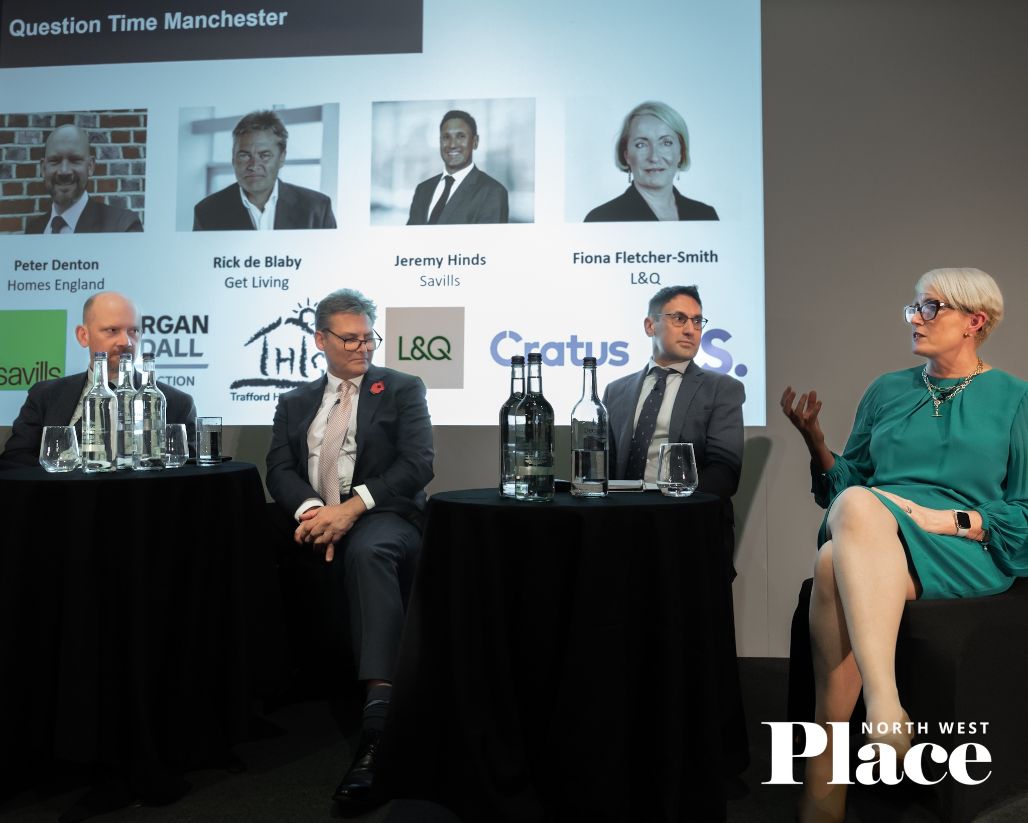
From left: Peter Denton, Homes England; Rick de Blaby, Get Living; Jeremy Hinds, Savills; Fiona Fletcher-Smith, L&Q
Living in the city
Panel one
- Peter Denton, chief executive, Homes England
- Rick de Blaby, chief executive, Get Living
- Jeremy Hinds, planning director, Savills
- Fiona Fletcher-Smith, chief executive, L&Q
- Chaired by Dan Whelan, senior reporter, Place North West
Affordable housing was a strong topic for the first panel – particularly how to manage this in a city centre. Fiona Fletcher-Smith said: “For any city to survive you need a mix of housing. But housing alone is not going to make a liveable and thriving city. Manchester has all the ingredients – planning policy, enthusiasm and understanding of place.”
Rick de Blaby was asked about the constraints to affordable housing on developers. “There are pretty heavy demands,” he said. “If we are trying to create good communities, our residents can vote with their feet. I like to think we have a role in providing affordable housing of the future.”
He also said Get Living, one of the developers at Middlewood Locks in Salford, had set up its own housing provider: “We would like to manage something holistically or it takes away a key bit of the efficiency. Building another lobby or lift is all cost – putting under one management has plenty of benefits.”
Peter Denton was asked about unlocking sites for affordable housing and he was keen to make the point that it’s not all about homes, but also about skills: “What we focus on is that market health.”
Jeremy Hinds questioned the geographical boundaries of the affordable housing debated – Greater Manchester including suburban areas and towns like Rochdale, not just the city centre. “It’s a very easy criticism to say there too many single- or two-bed apartments. How do we define Manchester? How is the interplay? If you constrain that, you will find easy levels of criticism. You need to look at the Greater Manchester conurbation and how the towns play in to that. There needs to be a recalibration of the question of affordability.”
De Blaby was asked about whether there should be concerns that the city’s exciting skyline will not age well. He said: “Our model is about scale and we try to differentiate neighbourhoods. We can put public realm in and put time in for a greater living experience. It is harder to do that in a vertical way.”
He also referenced how the pandemic had made people rethink the sort of property they wanted to live in. “The absence of balconies is affecting choice. A lot of people are defecting [places without balconies].”
De Blaby added that finding suitable sites for the sort of communities Get Living wanted to deliver, with hundreds of units on one site and amenity, was always a challenge: “There are never many sites on our scale.”
Whelan quoted The Economist’s annual global liveable city ranks which placed Manchester 54th but number one for the UK, and asked what more could be done to improve its standing.
Improving train travel, sustainable transport, environmental sustainability generally, and air quality were priorities for Fletcher-Smith. She said Covid-19 emphasised the importance of “green space that people can also feel safe in”. She added: “We have to make sure that it is built in and not tagged on. We are building for the next generation.”
Though he was positive about the city’s development, Denton said there were also economic issues to take into account. “There is a va va voom to the place but there are construction issues. Manchester is expensive for a number of things. Inflation here [in relation to the construction industry] is double the target and there are labour pressures.”
Hinds highlighted the benefits to the city of 40,000 annual university graduates, as well those who had graduated elsewhere and were moving to ‘core’ Manchester and the suburbs.
De Blaby talked about his company’s development of the former Olympic athletes’ village in London as a way of explaining how residential areas evolve. “There is a place that has nearly 4,000 homes and 40% affordable housing. What we found is that the first cohort tended to be students and transient residents. By the time we got to the third or fourth season, people began to stay longer. People moved in as singles and have how formed partnerships. It’s full of prams! Now we are asking how we get grandparents to come and rent in our neighbourhoods. We are about creating neighbourhoods with defined personalities where people are living their best life. You don’t do it overnight – you create a stage for the people who live there, you don’t create communities.”
Denton explained how Manchester has three layers – the very transient residents, areas of property owners, and the middle layer of affordable housing, and asked how the wider city region could better allocate housing requirements. “It’s hard to make mixed communities and I’m one to advocate for mixed communities through cities.”
Whelan asked what would panellists like to see to improve the quality of living experience in Manchester.
Hinds said: “Micro parks. It’s too late to invest in big parks. Give people the spaces they can enjoy on their doorstep.”
Denton: “Not just long-term planning but long-term spatial awareness.”
De Blaby: “Net carbon zero. It’s about getting the orchestra and choreographer on a single way.”
Fletcher-Smith: “I’m always struck by the lack of trees so, wherever you can, plant and grow.”
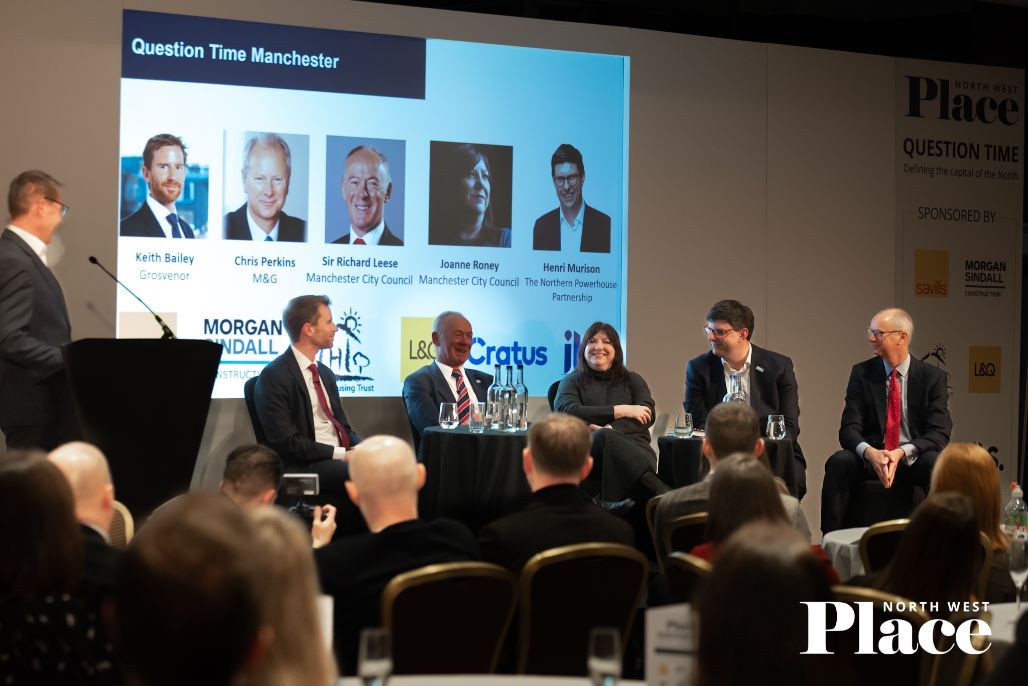
From left: David Thame hosted a panel made up of Keith Bailey, Grosvenor; Sir Richard Leese and Joanne Roney, Manchester City Council; Henri Murison, Northern Powerhouse Partnership; Chris Perkins, M&G
Investing in the city
Panel two
- Keith Bailey, investment director, Grosvenor
- Sir Richard Leese, leader, Manchester City Council
- Joanne Roney, chief executive, Manchester City Council
- Henri Murison, director, Northern Powerhouse Partnership
- Chris Perkins, head of UK capital markets, M&G
- Chaired by David Thame, analysis editor, Place North West
David Thame opened with a question about Northern Powerhouse Rail in light of the government’s latest announcements about dramatic cuts to the original programme.
Henri Murison made the point this was a political argument, while Chris Perkins said there was still commitment from government to Manchester as a city. Keith Bailey said the significant investment that remained in the revised proposal was still viewed as a positive by investors from London.
Sir Richard Leese said that the scheme was about more than journey times. “Northern Powerhouse Rail would have created more capacity. The biggest loss is not speed, it’s the loss of capacity.” He also pointed out that Manchester has ‘done well’ compared to the rest of the North and added: “What we will not get is the benefits from the whole of the North as well.”
A conversation about levelling up had the panel and the audience laughing as Thame investigated who had spoken to Michael Gove since becoming Secretary of State for Levelling Up, Housing and Communities.
Murison arguably won the name-dropping contest with his references to ‘Michael’, and prompted a discussion around regional devolution, how money was spent and whether the government finds it ‘hard to let go’ of control. Joanne Roney added, of her meetings with Gove: “I was very struck by him saying to regenerate a place like North Manchester you have to go to 143 different funding streams. ‘We need to think differently’, he said.”
Leese elaborated on this saying “whoever is in power”, government remains a “collection of independent fiefdoms” that do not work well with each other.
There was discussion around investment attractiveness, with Perkins saying: “The key for us as an investor is to see collaboration in the public sector and to see consistency in that.” And he warned against plans being “derailed because of different political sentiment.”
He added: “These investments we are making are people’s pensions. They need to be looking decades ahead.”
Leese said: “Since we set a 10-year strategy we’ve had three governments. Our strategy has not changed. We stuck with the long-term strategy.”
The conversation turned to the environment and whether there was a conflict between public policy and private money. Perkins commented: “What is fundamental is to future-proof investment. We would be very challenged if developments couldn’t get to net carbon zero.”
Keith Bailey added: “Carbon neutral is a key part of what we do and has been for years. We are very passionate about that. We have committed a few hundred million and we are continuing to invest in Manchester. We are looking for buildings where we can bring experience in that field. We have just got planning [permission for a net zero building] in London and are bringing some of that learning [to the regions].”
Leese: “If we say ‘these are the standards we have to meet’, the industry will rise to the challenge.”
Thame asked the panellists what, if they were to meet next year, would they like to see delivered in the meantime to help the property market and the economy flourish.
Murison felt it would be simplifying the bus system, which he saw as Leese’s legacy, an initiative that was showing progress and would make a “massive difference” to residents. “Some very hard stuff takes years and years,” he added.
Perkins said: “Given that Manchester is a significant global city, it needs to look to overseas investors. Manchester hasn’t got that, a lot of capital is still going to the South East.”
Bailey added: “Public space is important to making Manchester attractive to investors.” He referenced the latest design competition for Piccadilly Gardens and that the city should be curating and celebrating great public spaces.
Leese asked “what drives the economy?” He added: “Henri is talking skills, we’ve talked infrastructure. We need innovation and to continue investing in culture and the arts within the North of England. It’s something of enormous benefit and there is supposed to be a lot more in that pot.”
In closing, Thame summed up: “Manchester is in a cusp-y kind of space. Much has been done and much remains to be done. Manchester stands on many legs and that provides stability and growth.”
Click image to launch gallery


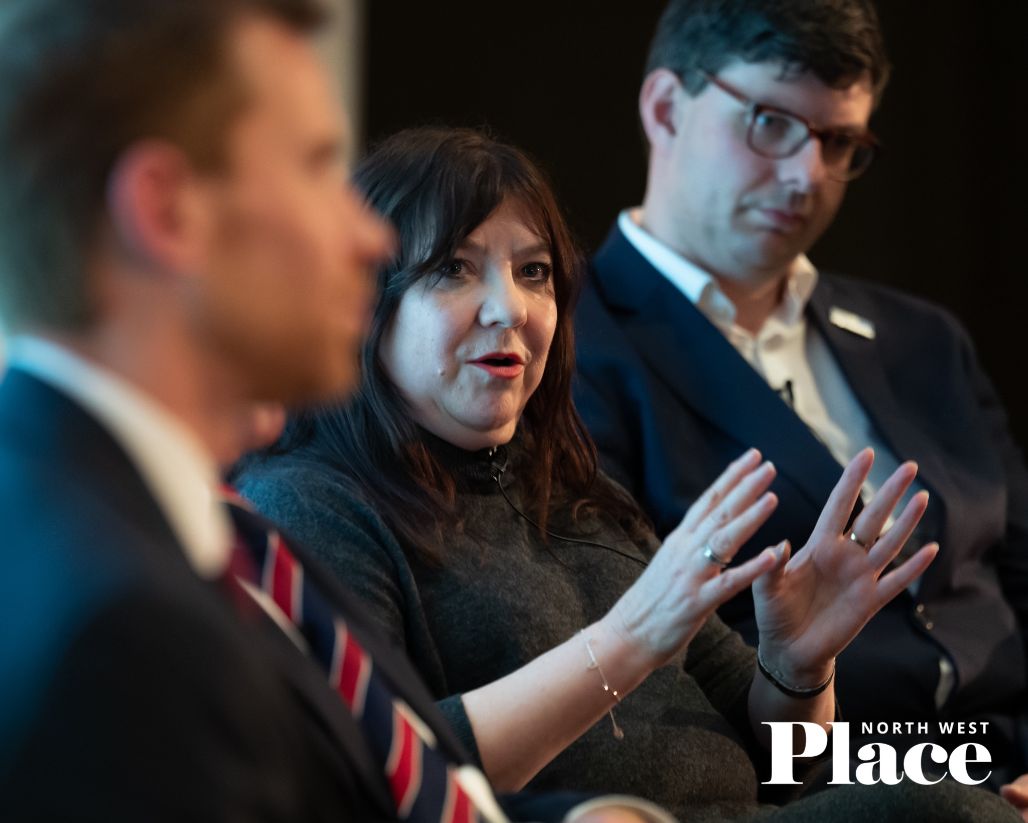
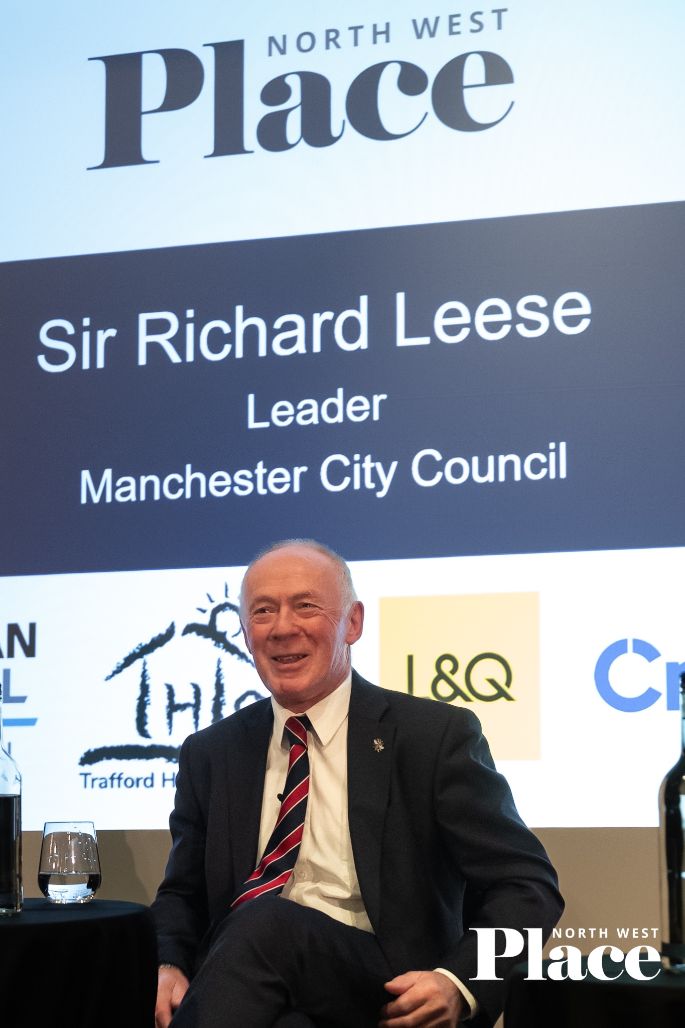
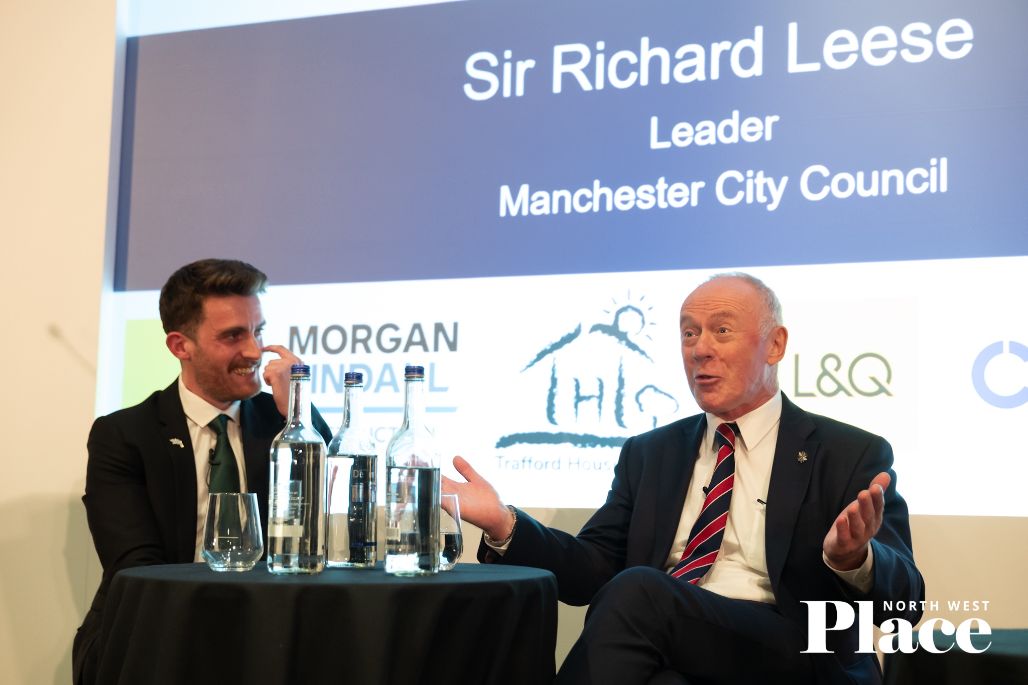
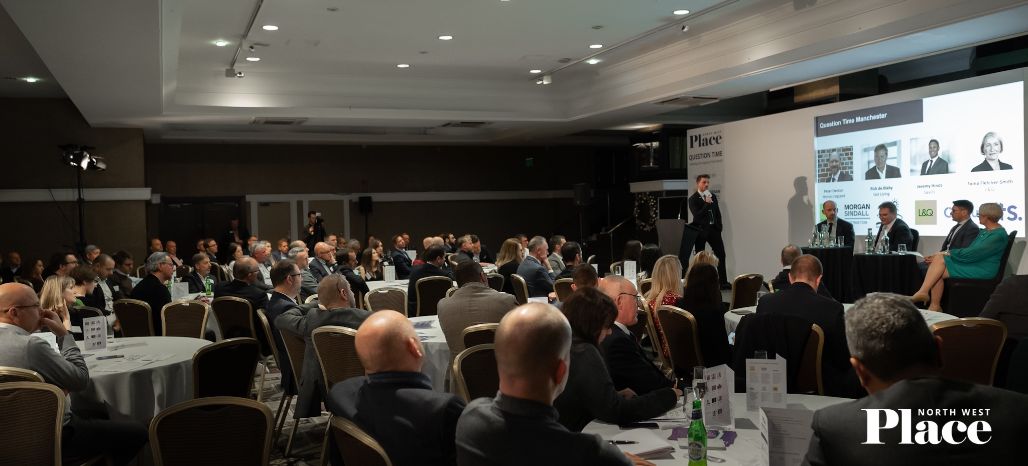
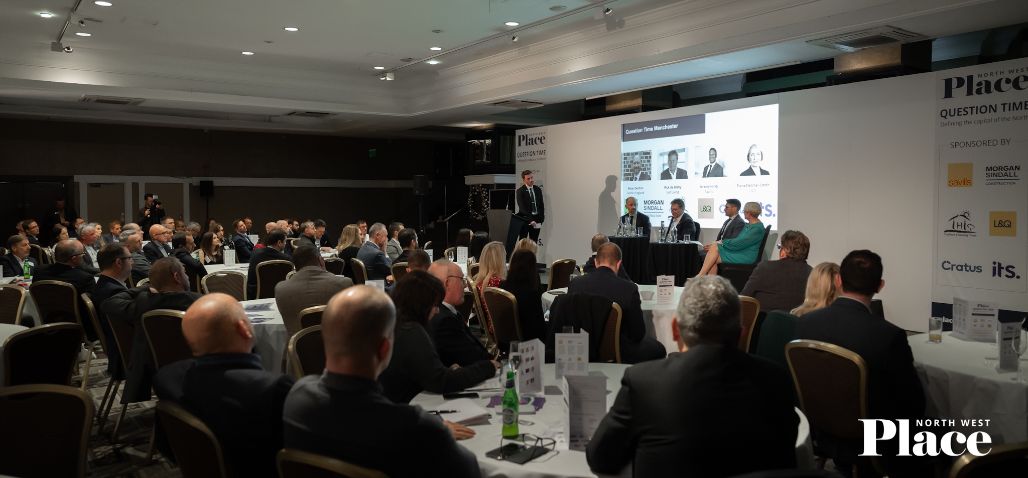

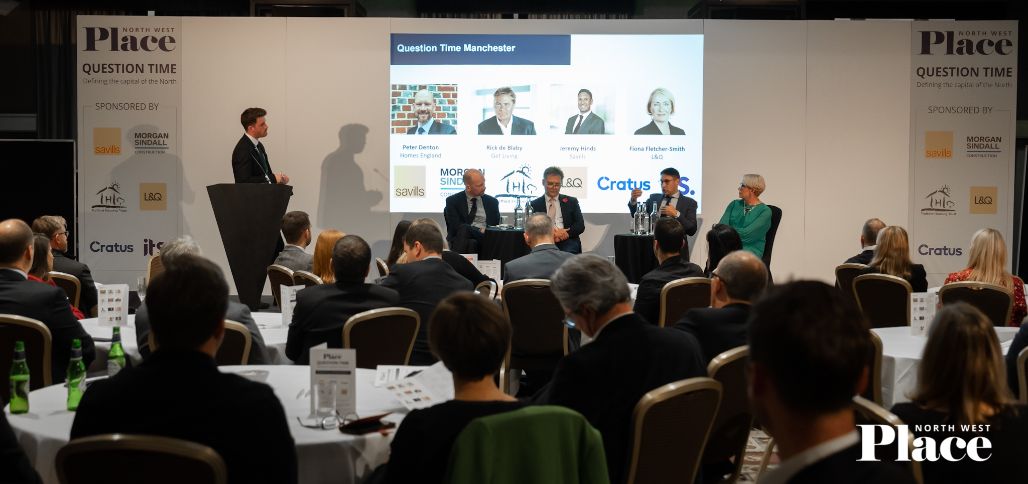
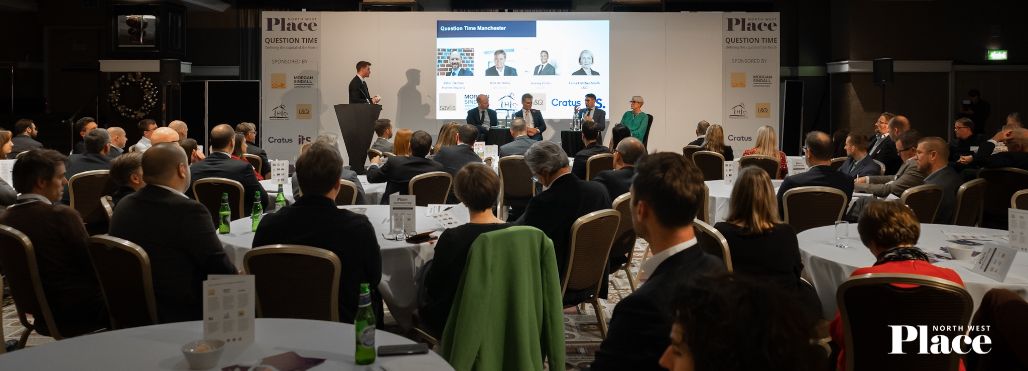
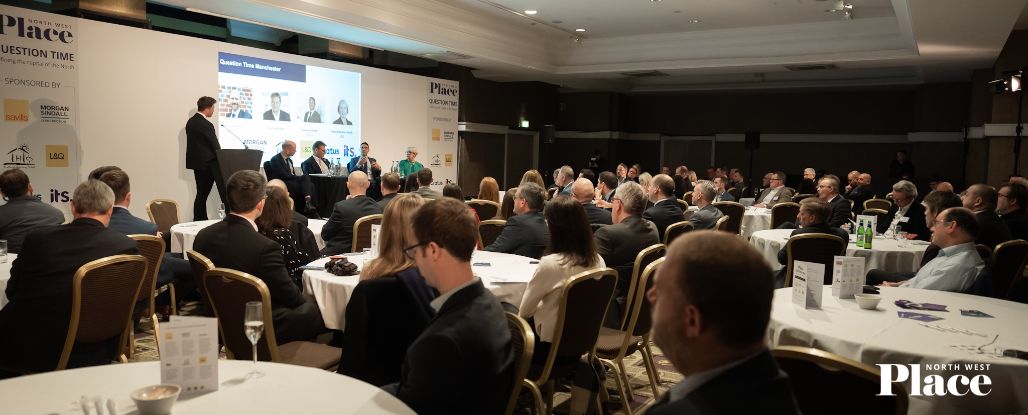
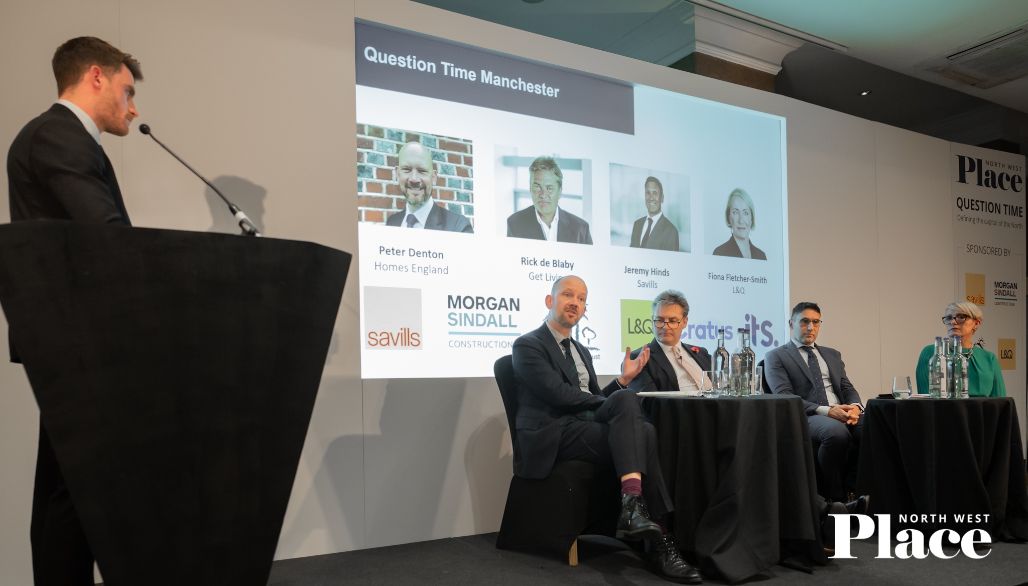
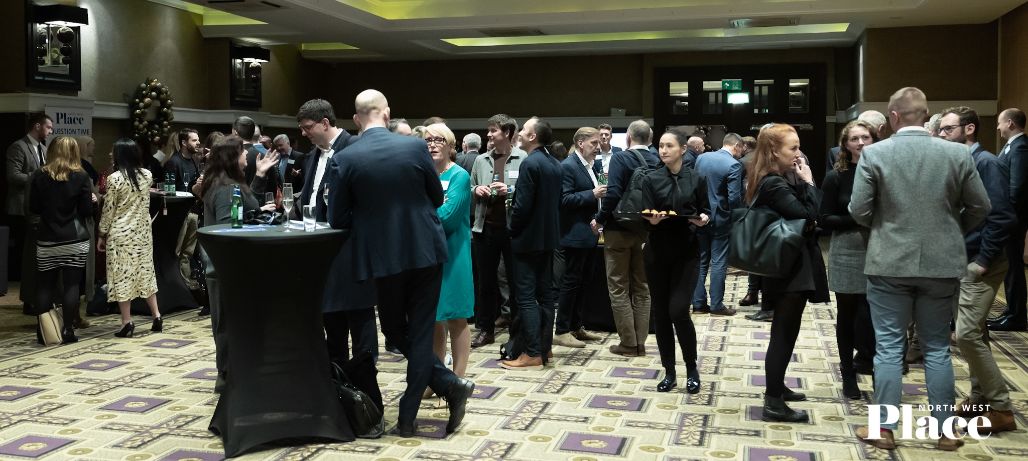
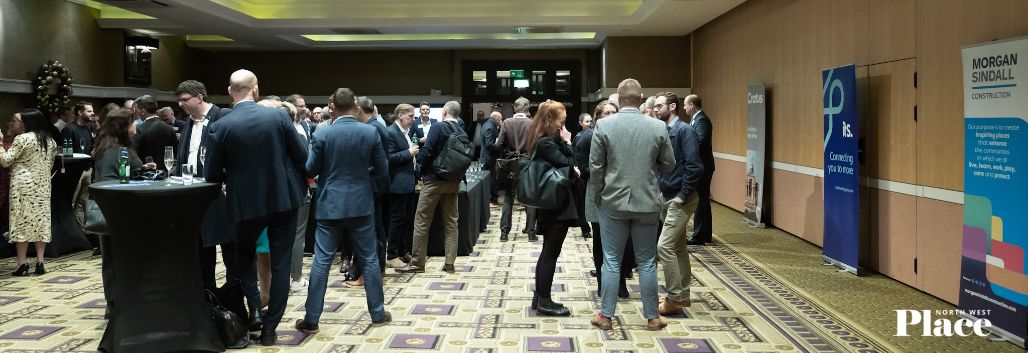
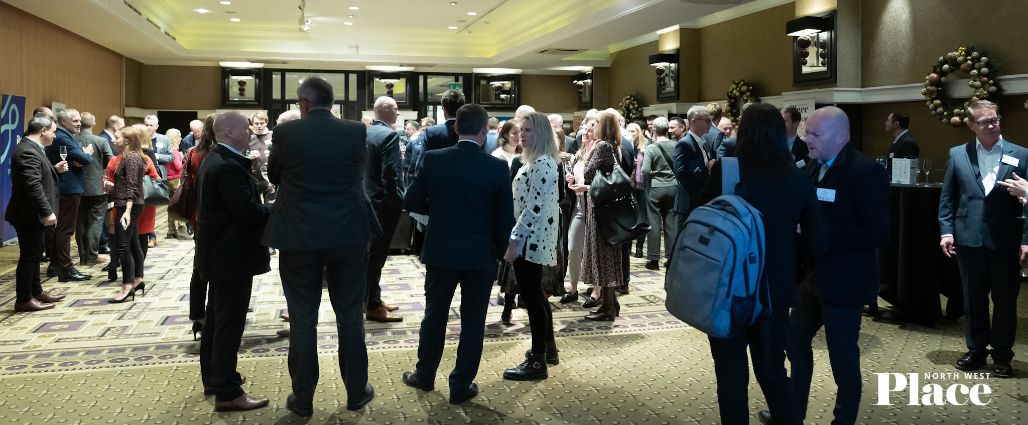
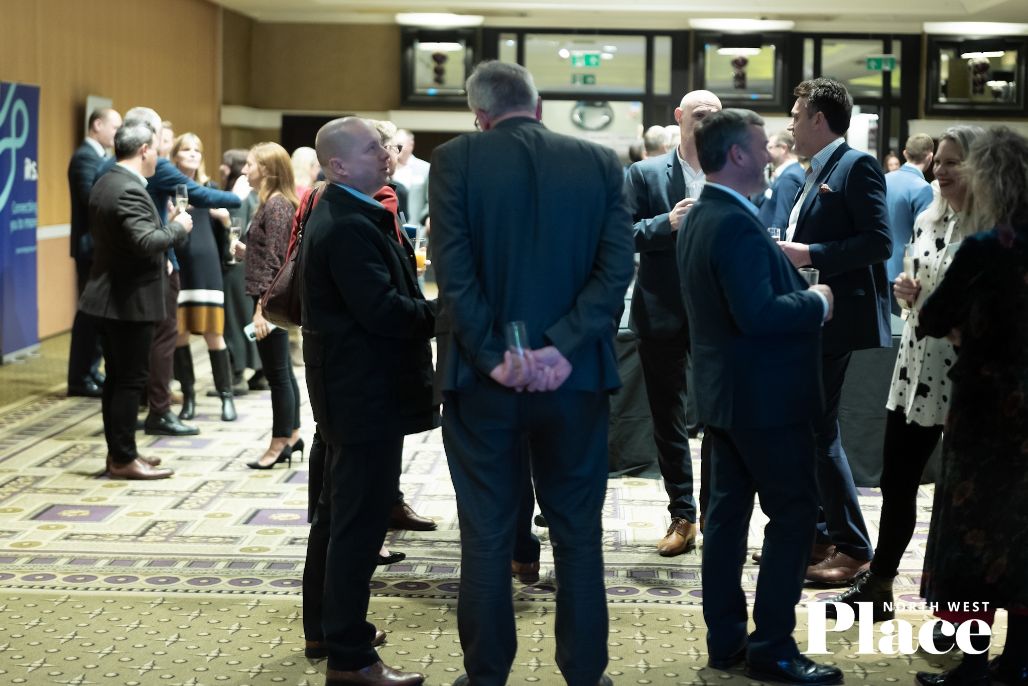


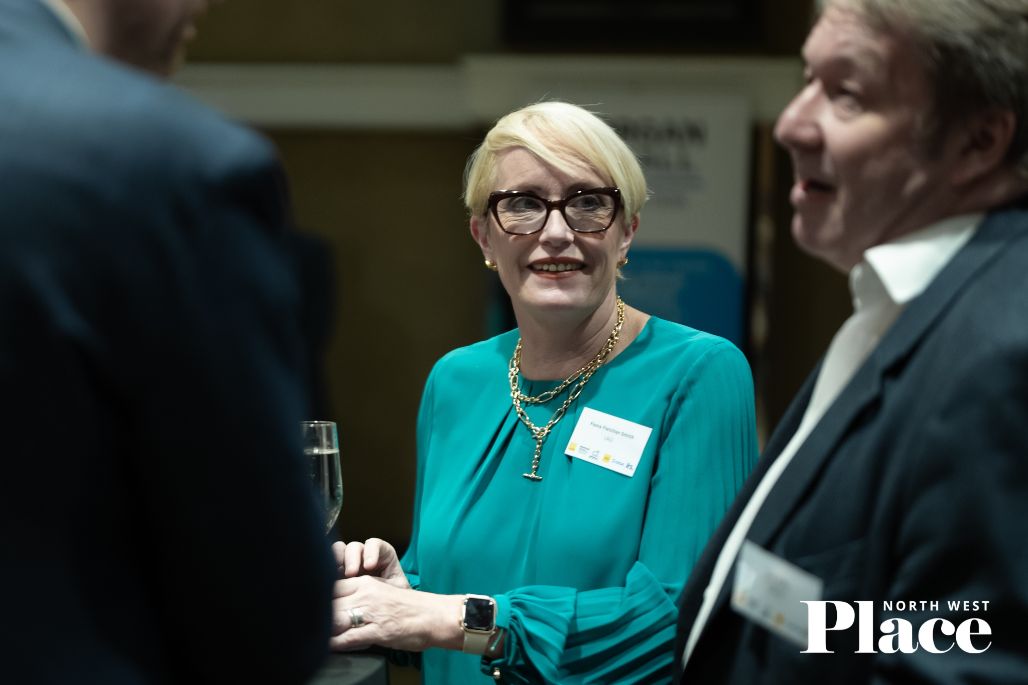
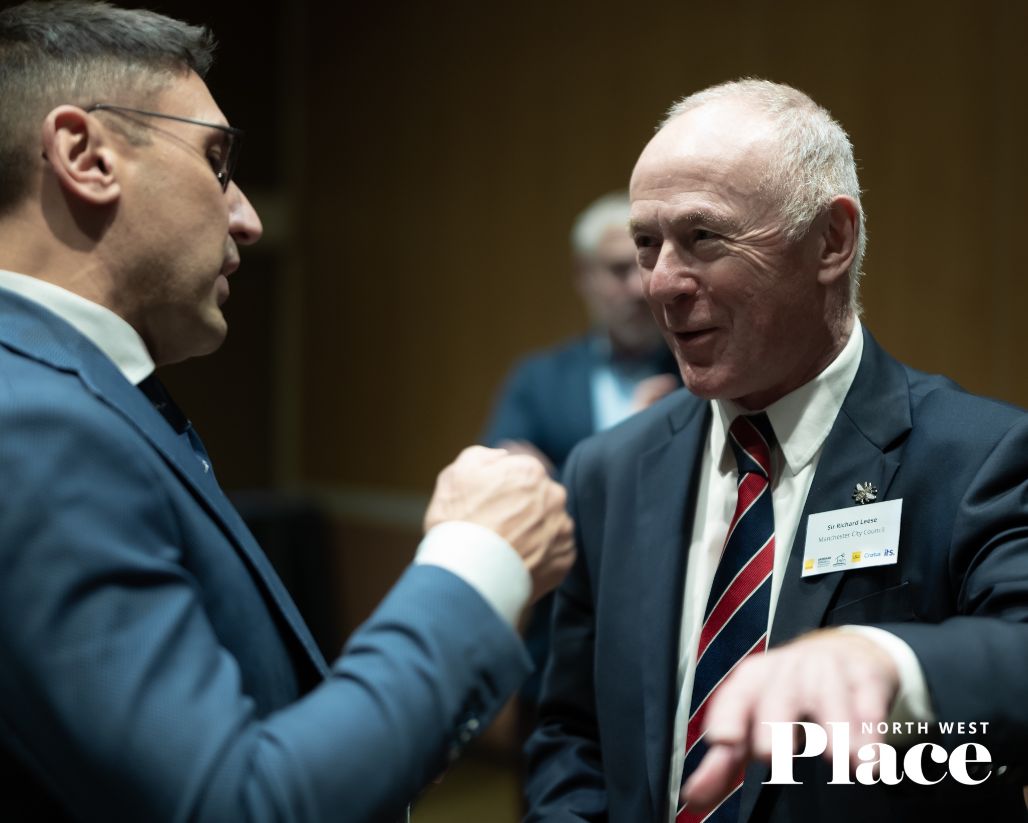

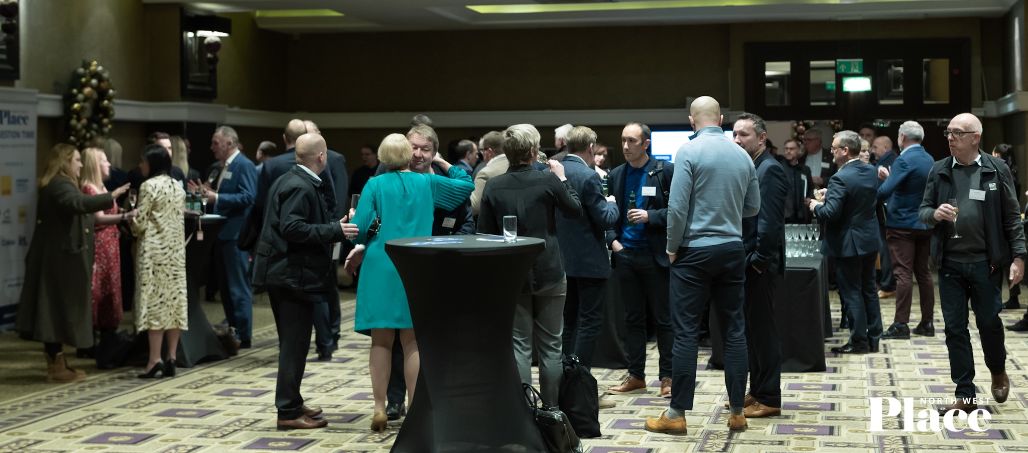

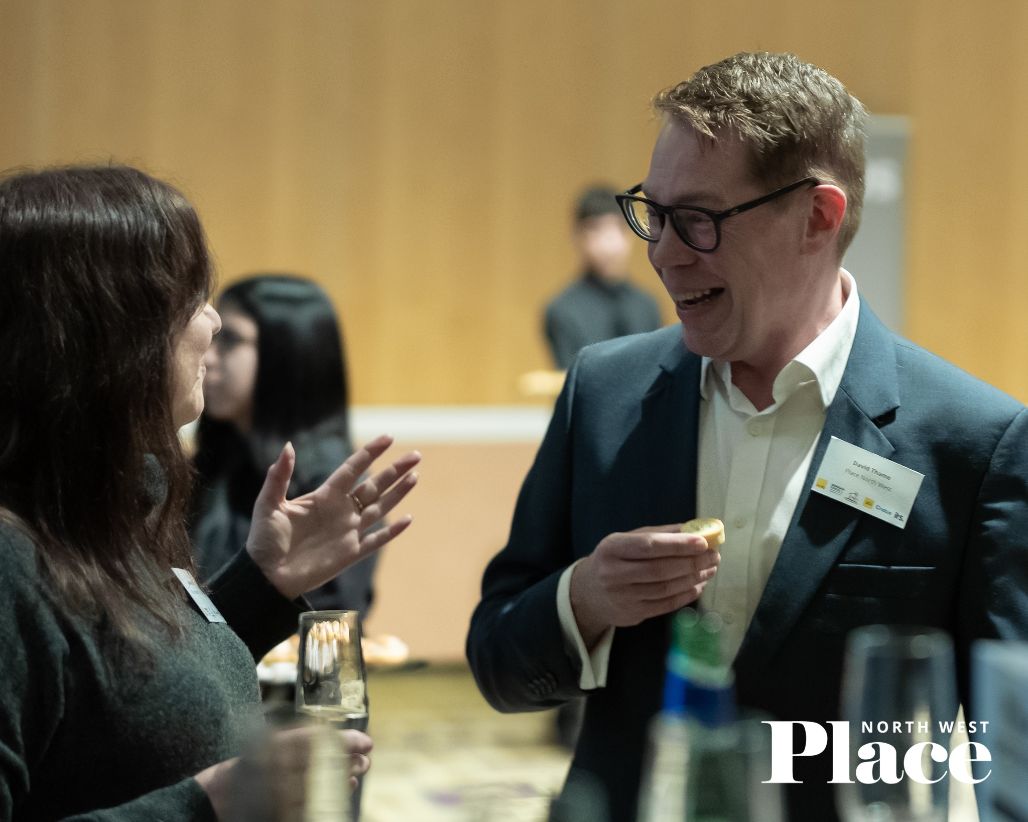

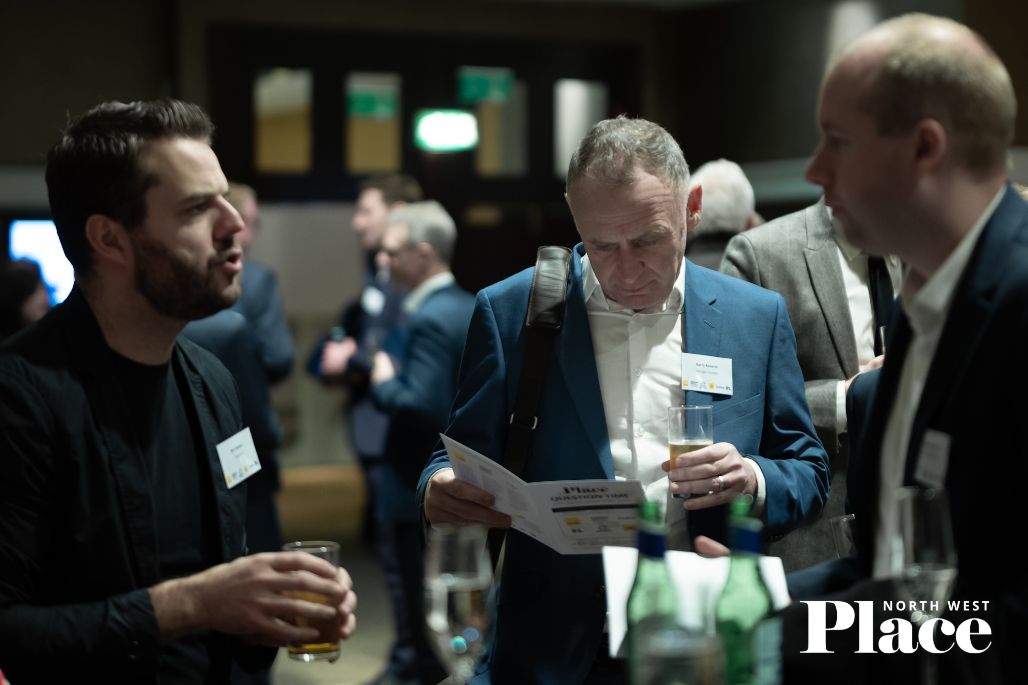

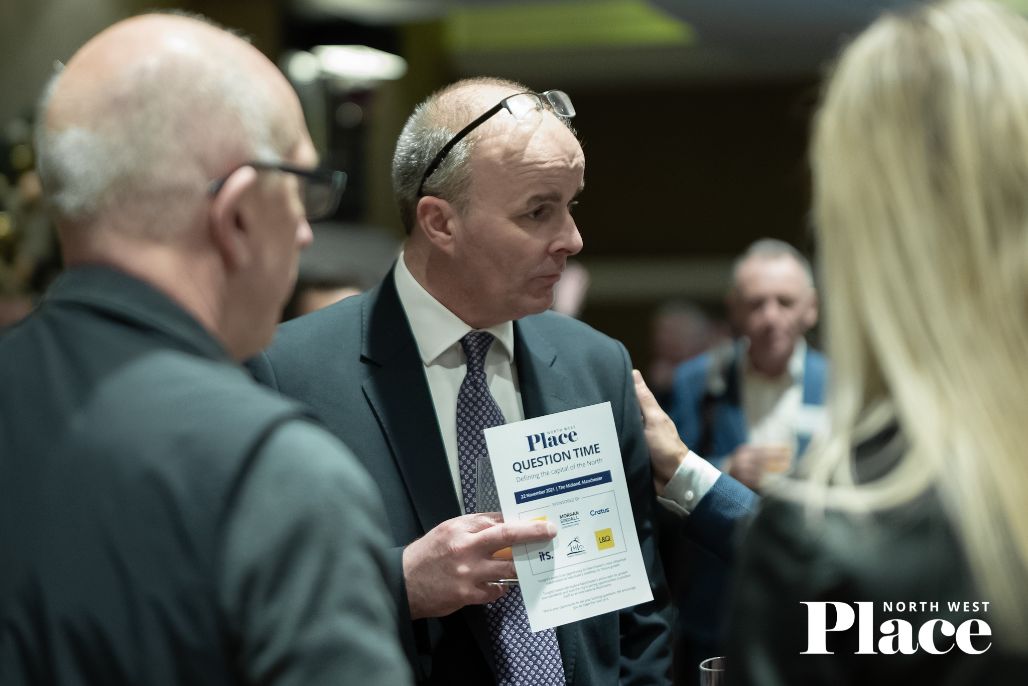
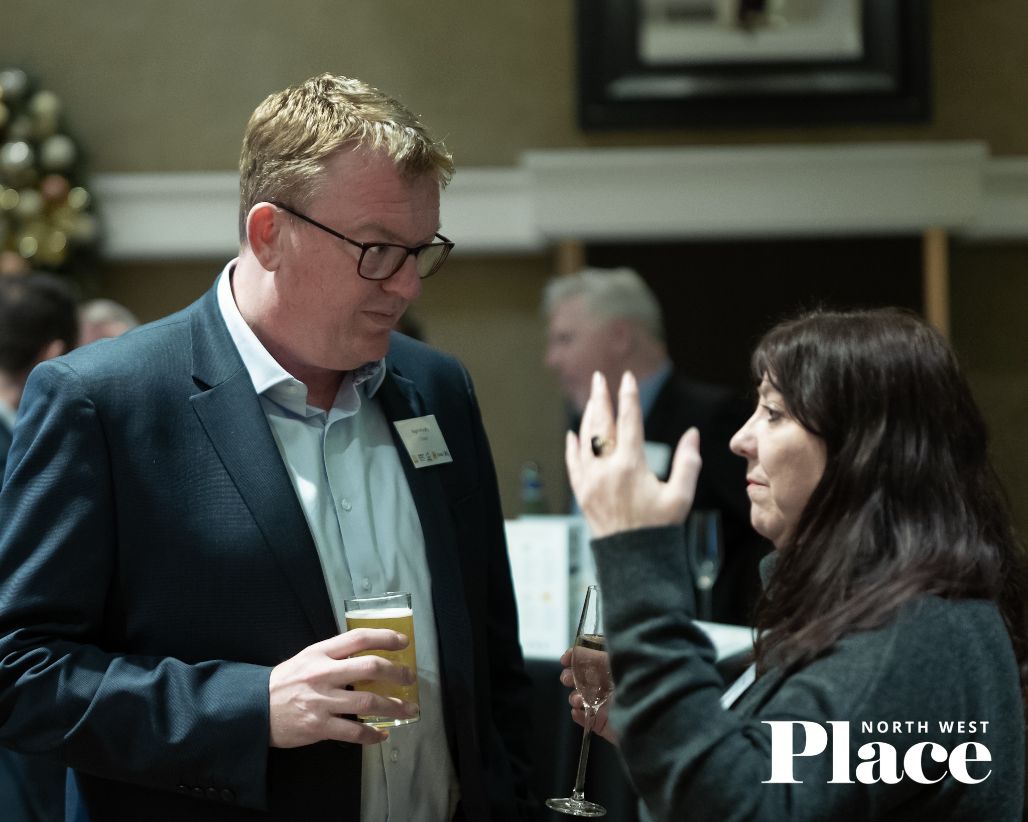
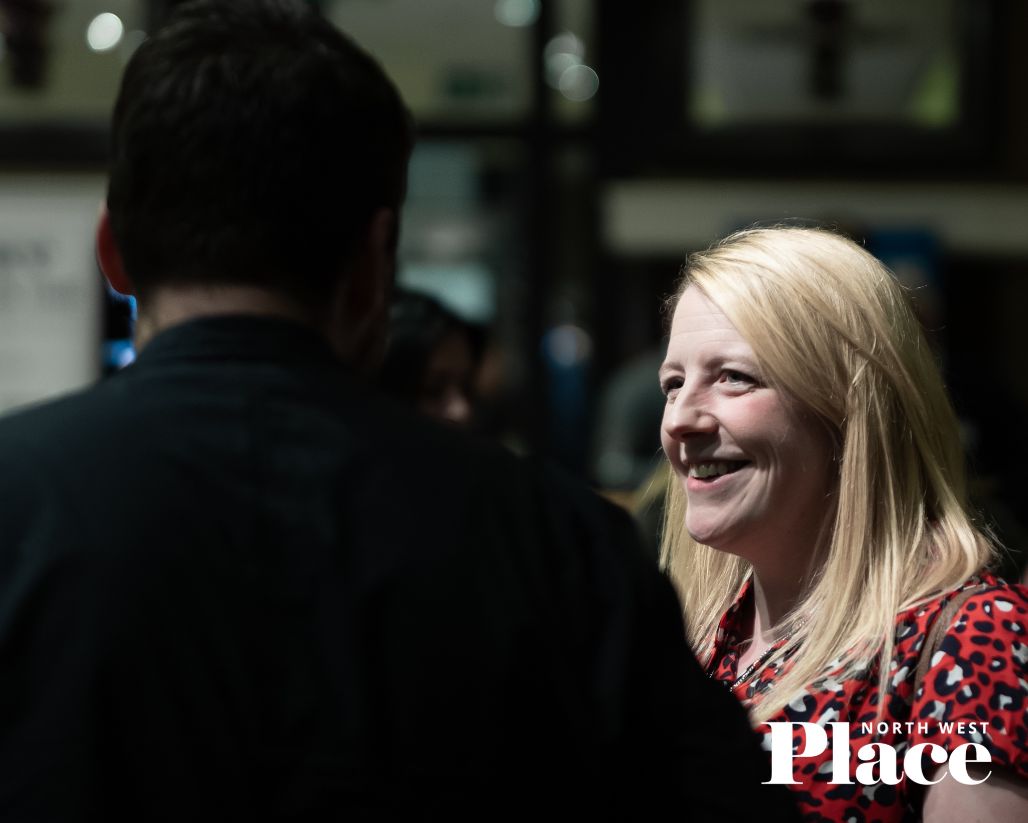
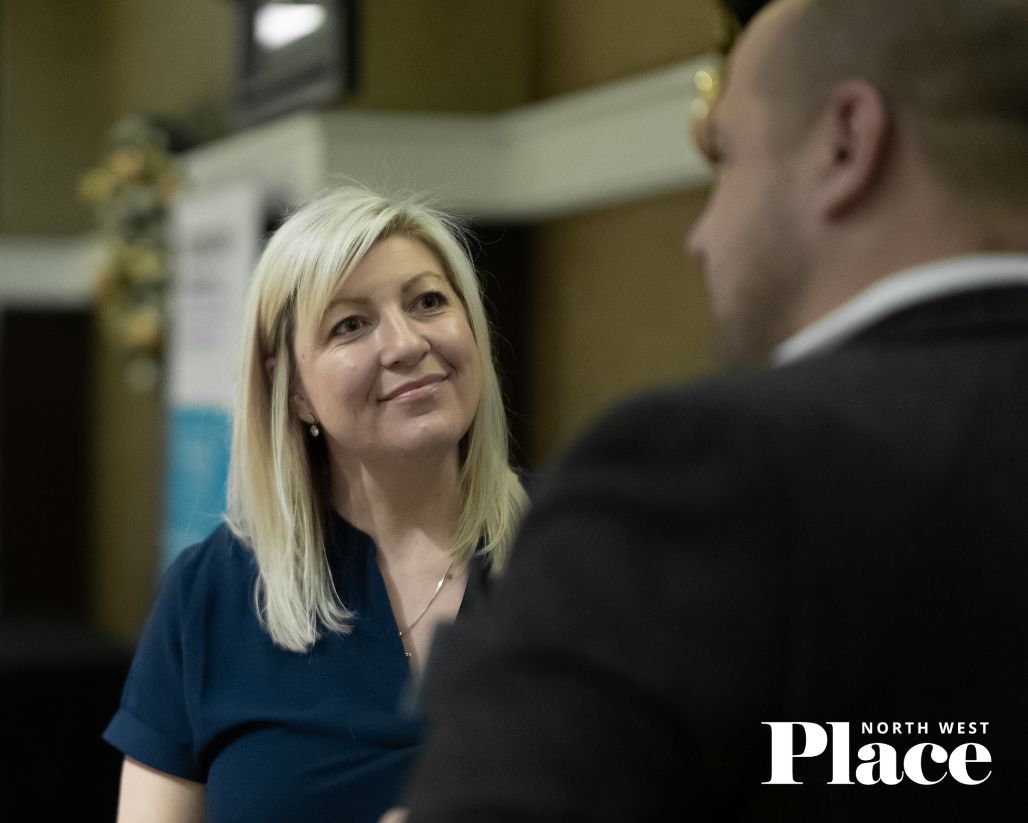

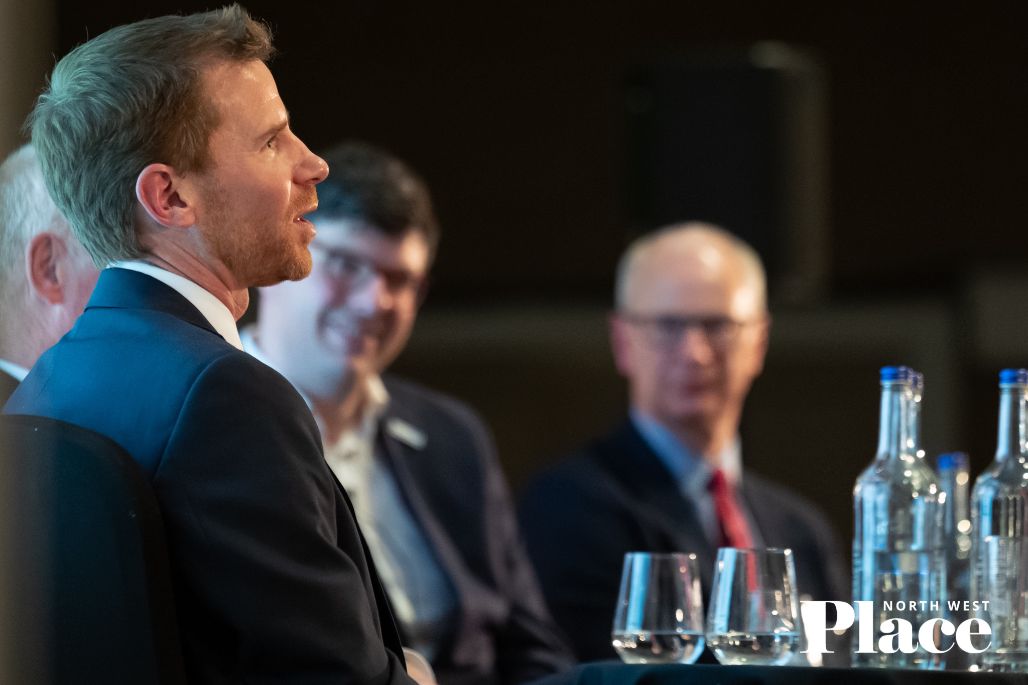
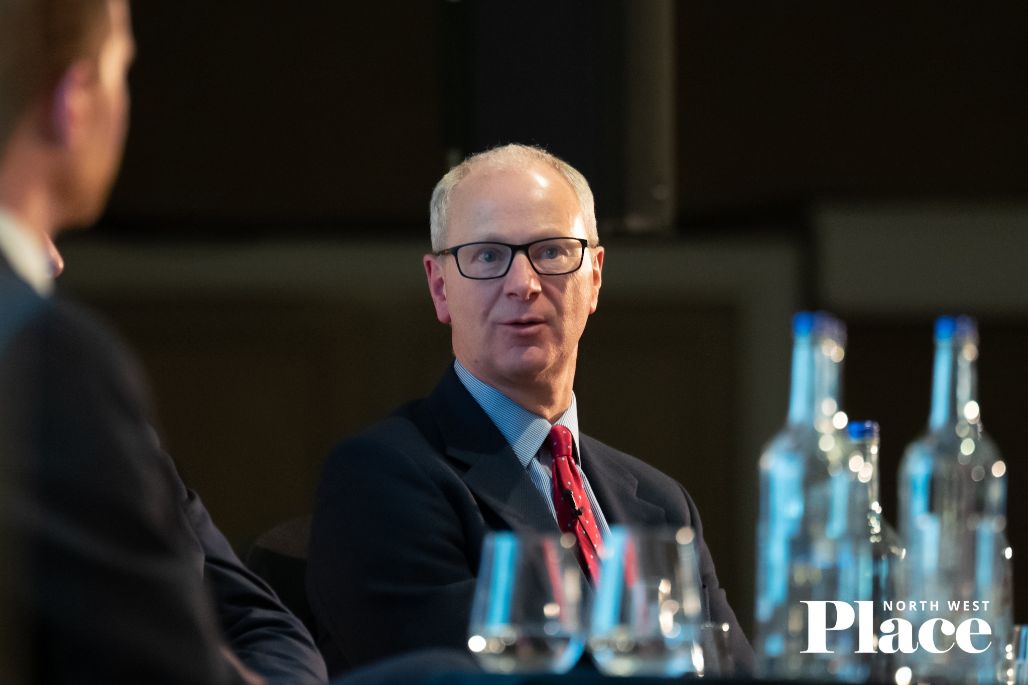
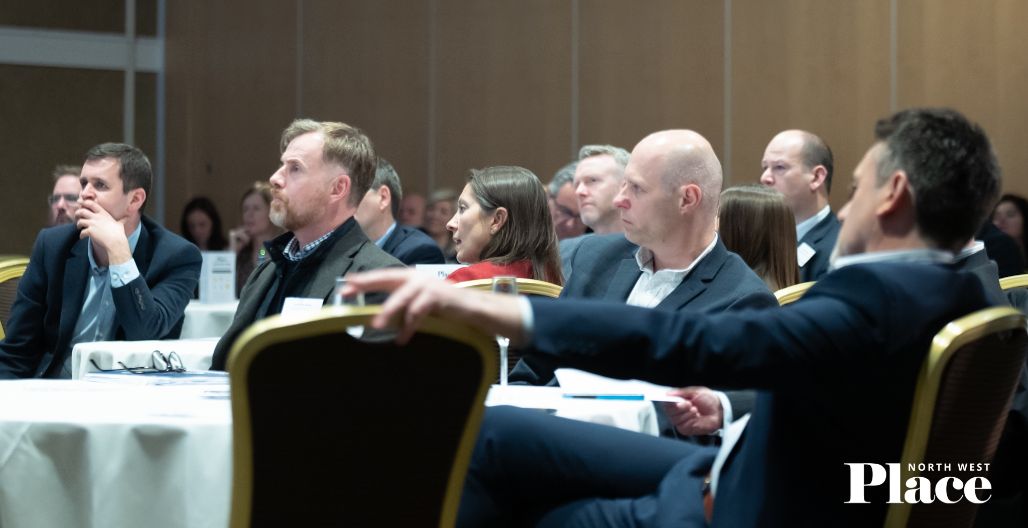
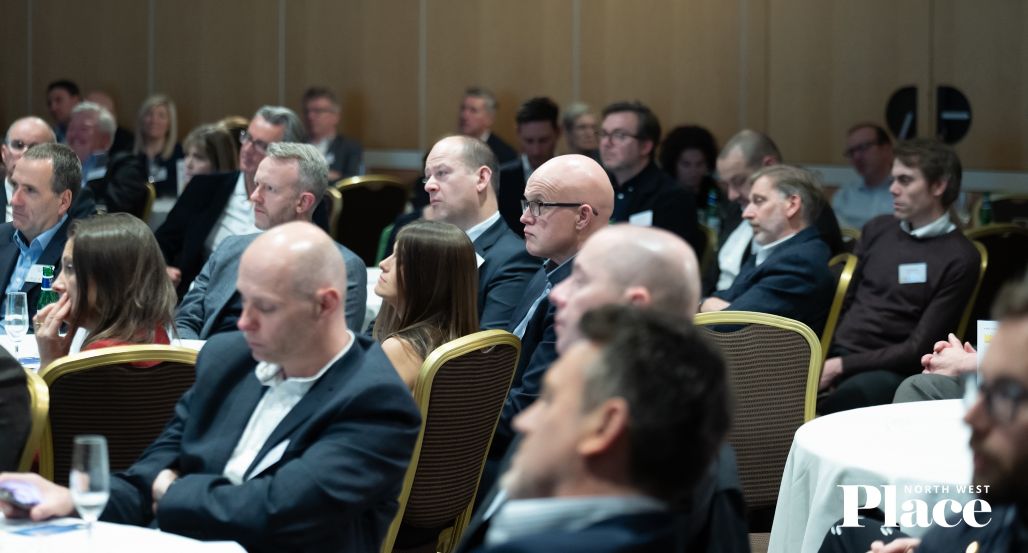

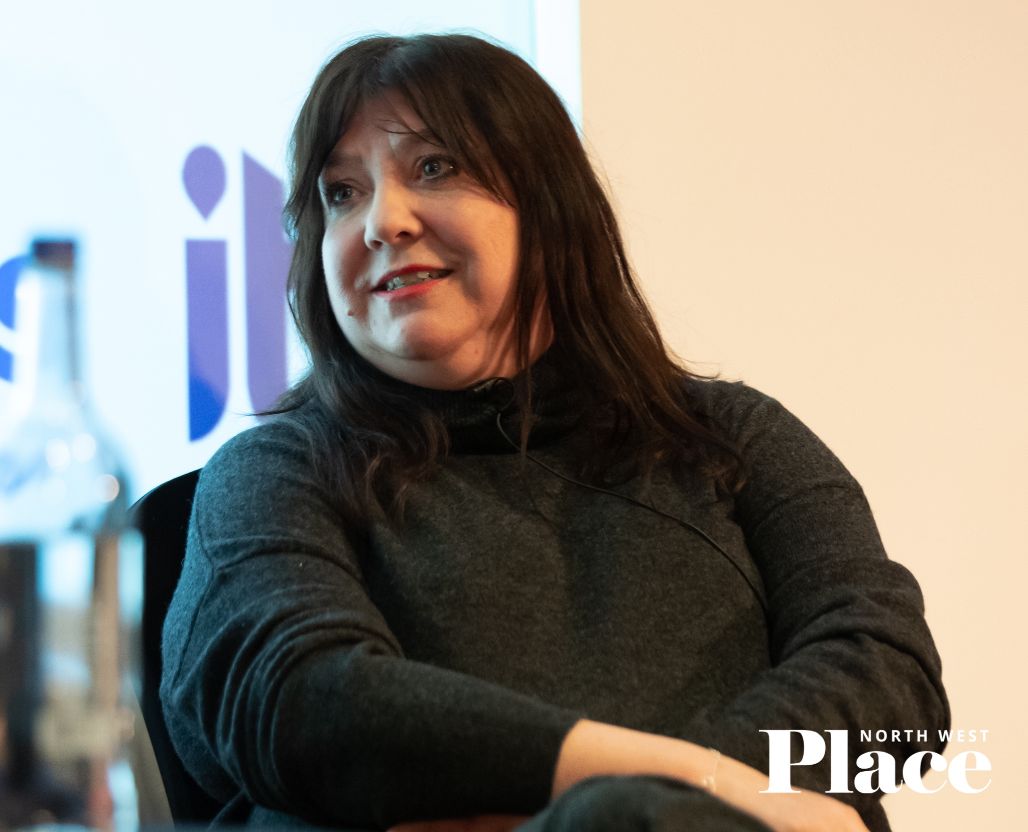
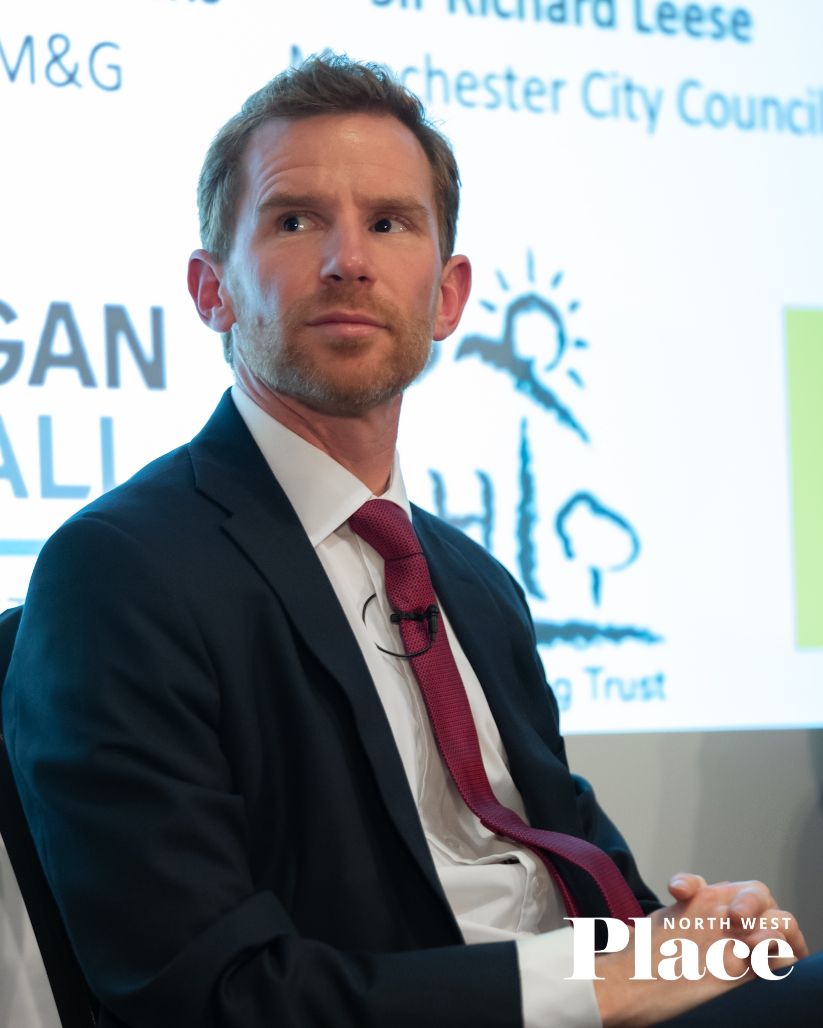

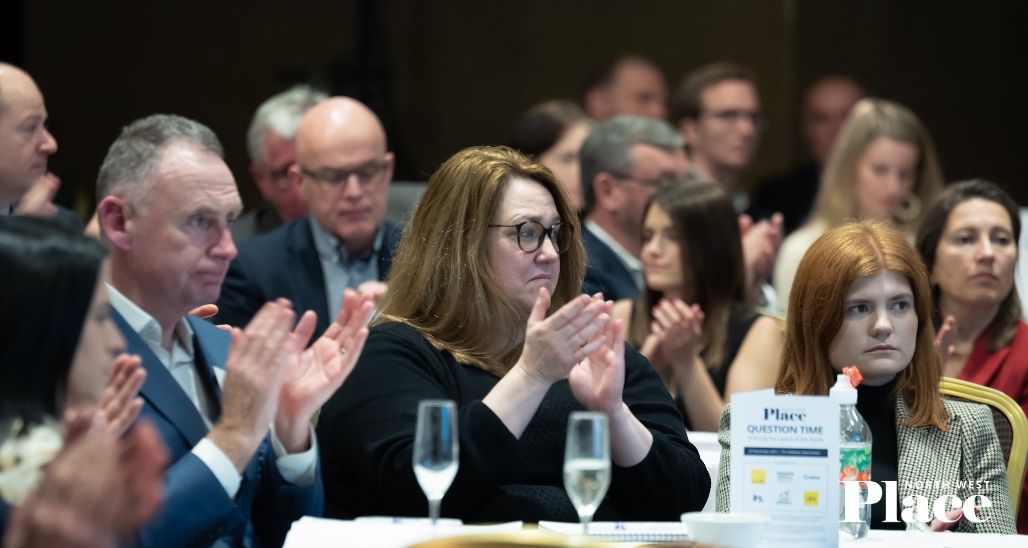
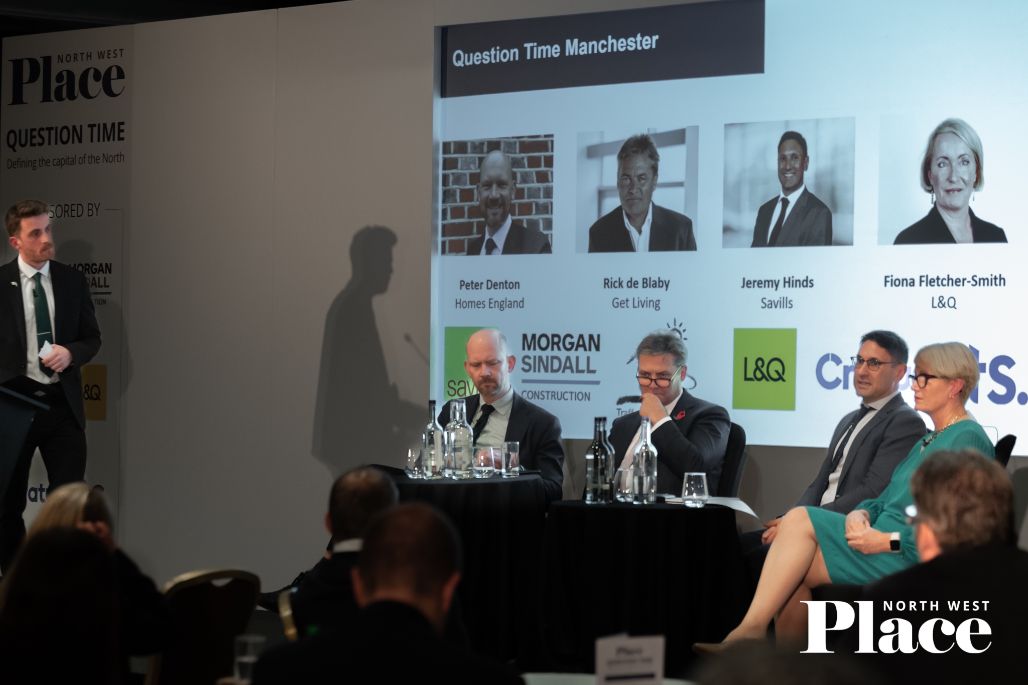
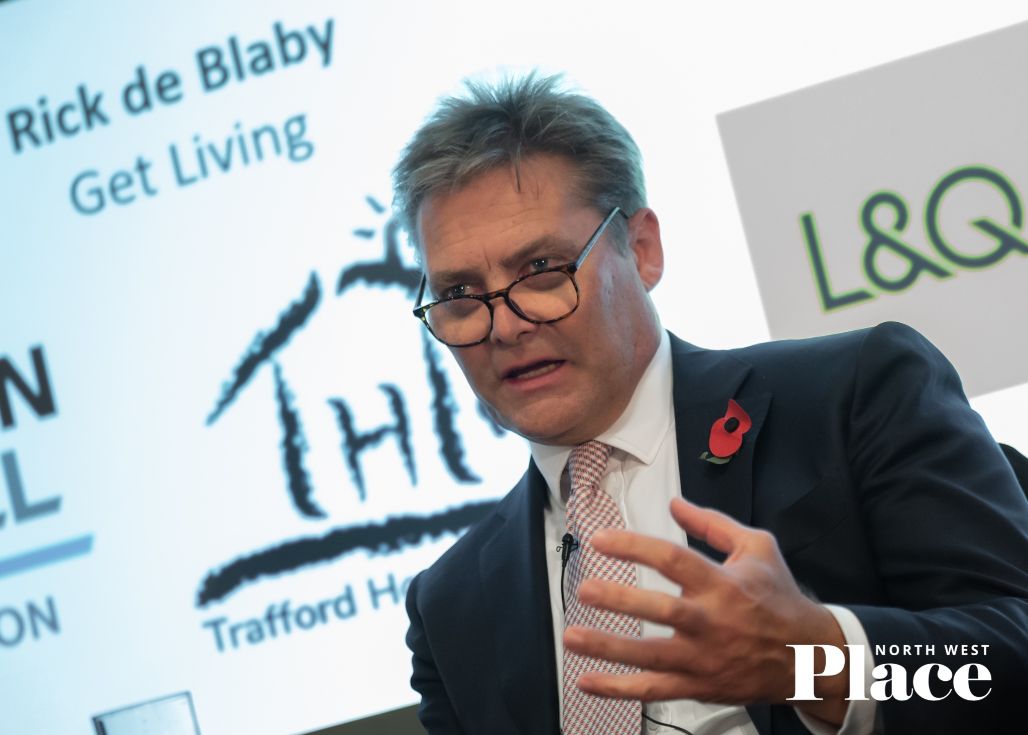
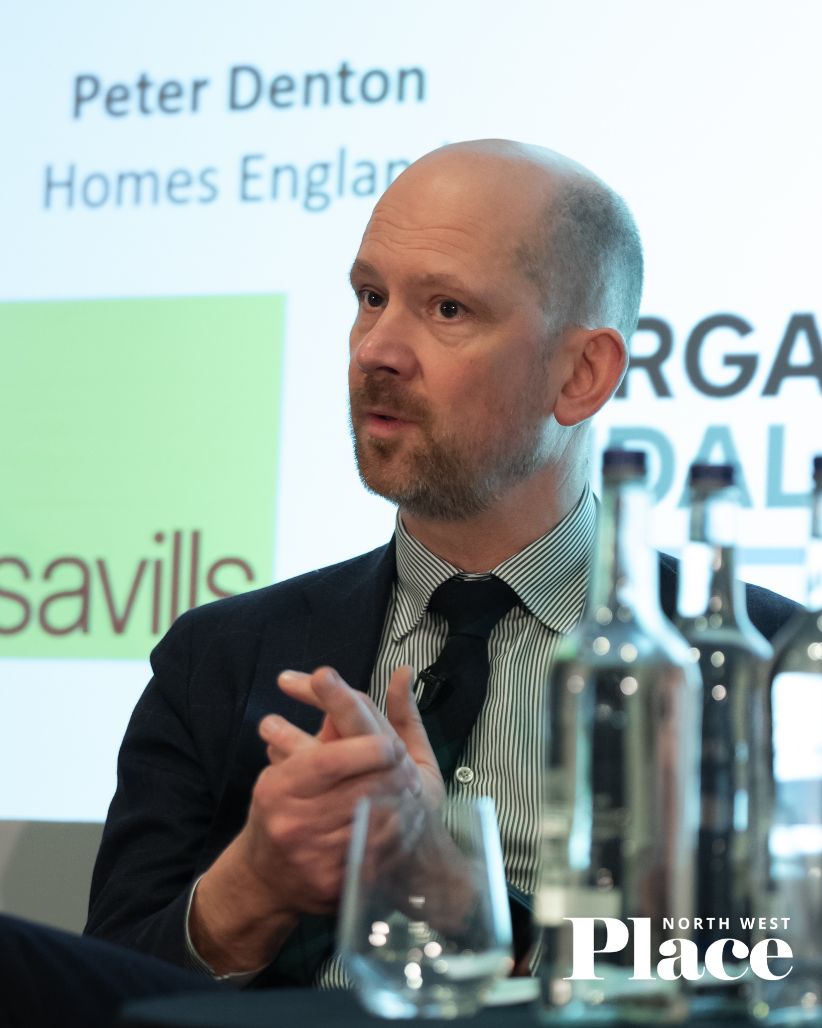
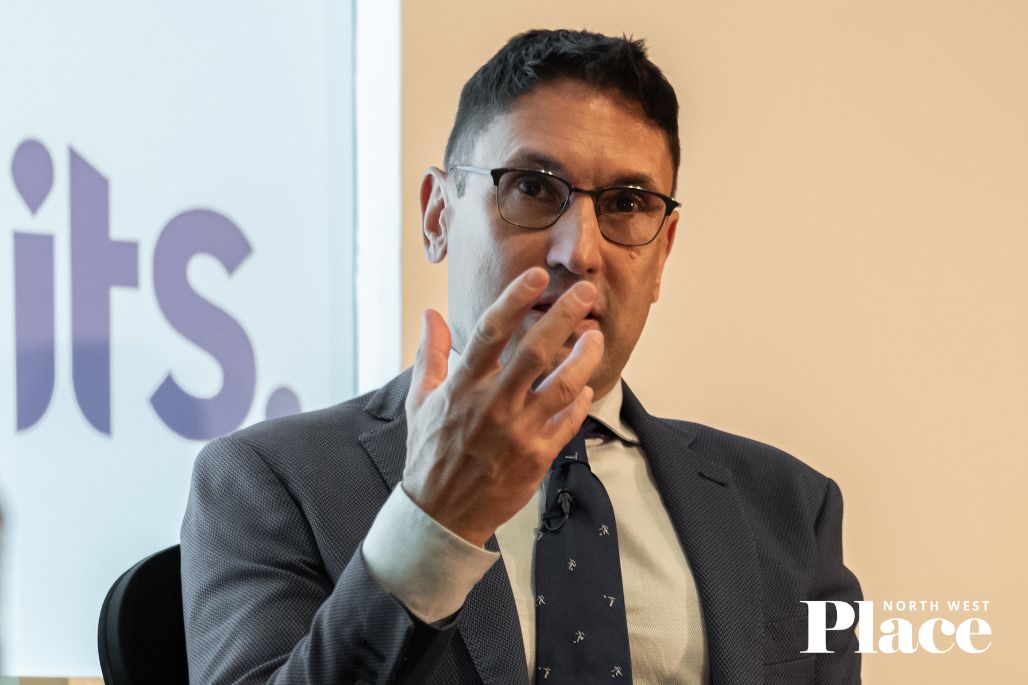
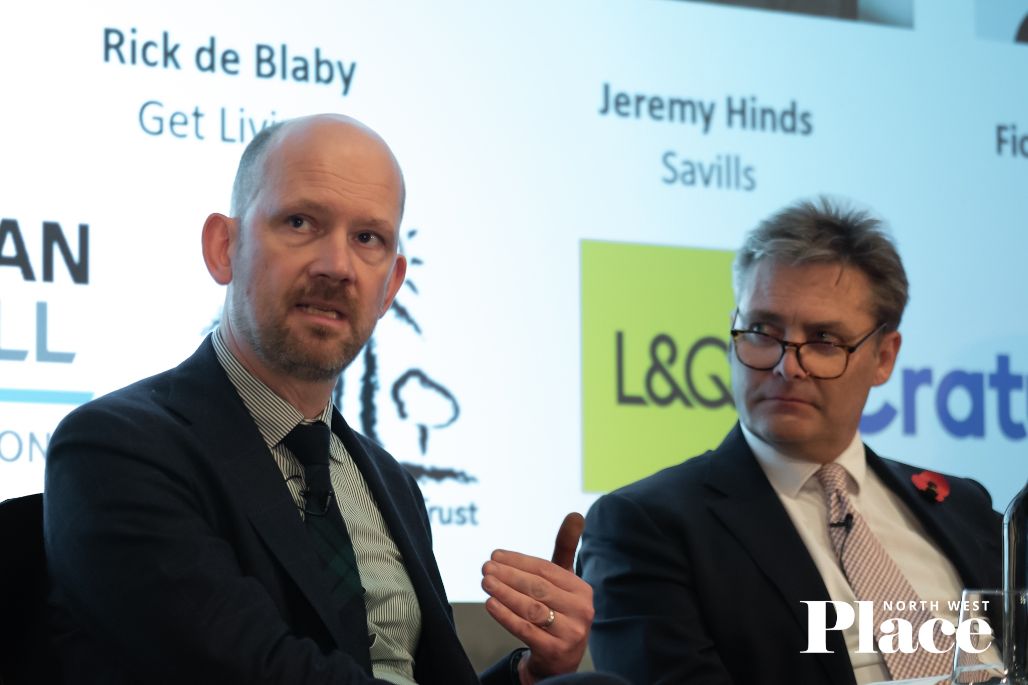

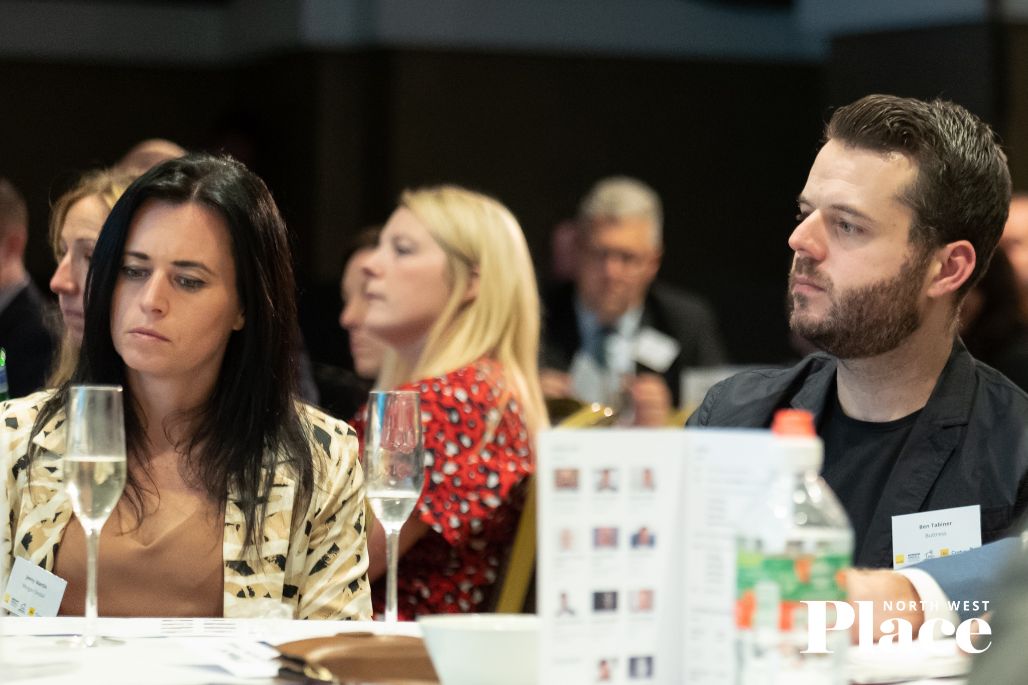
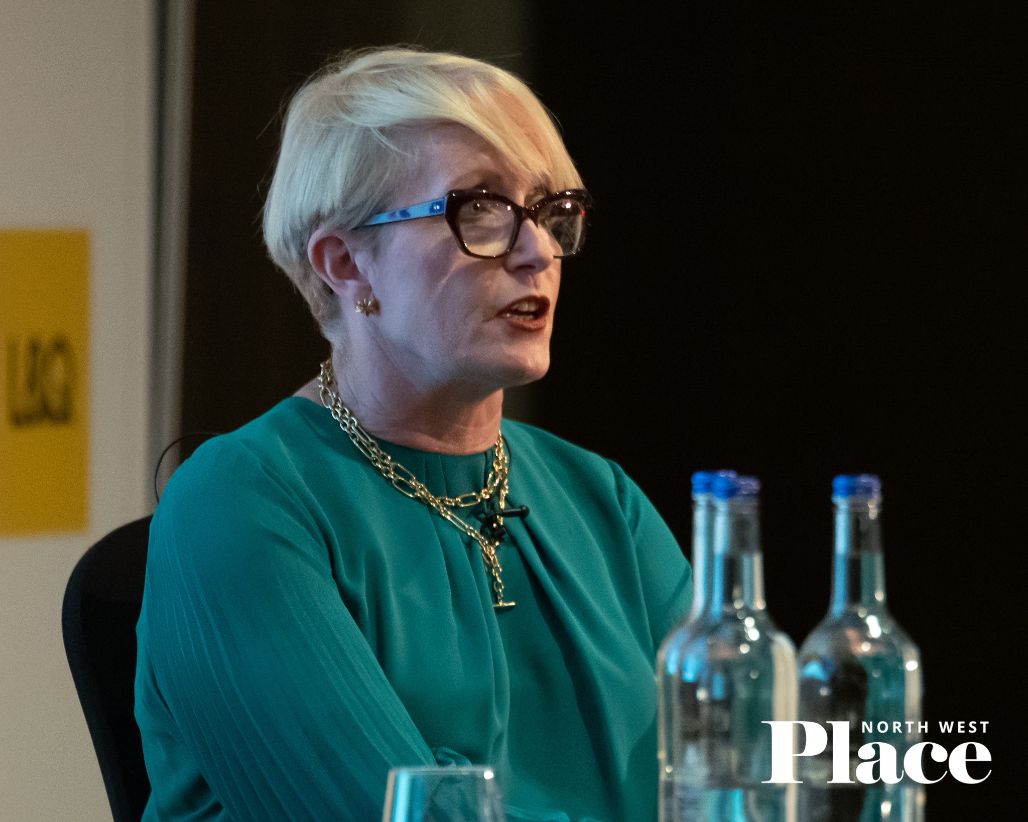
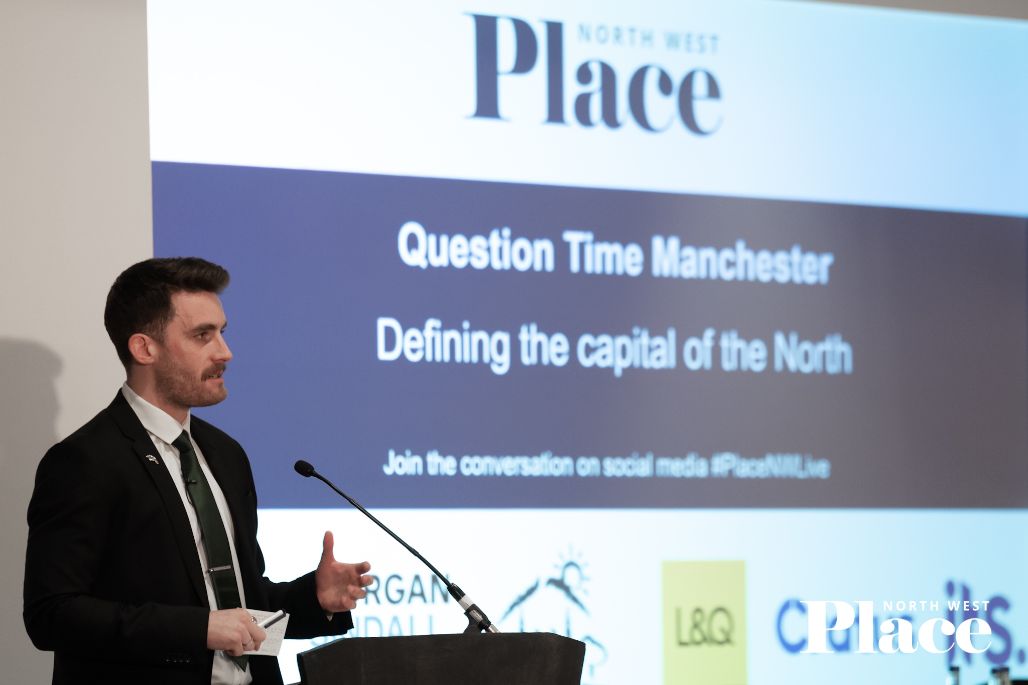
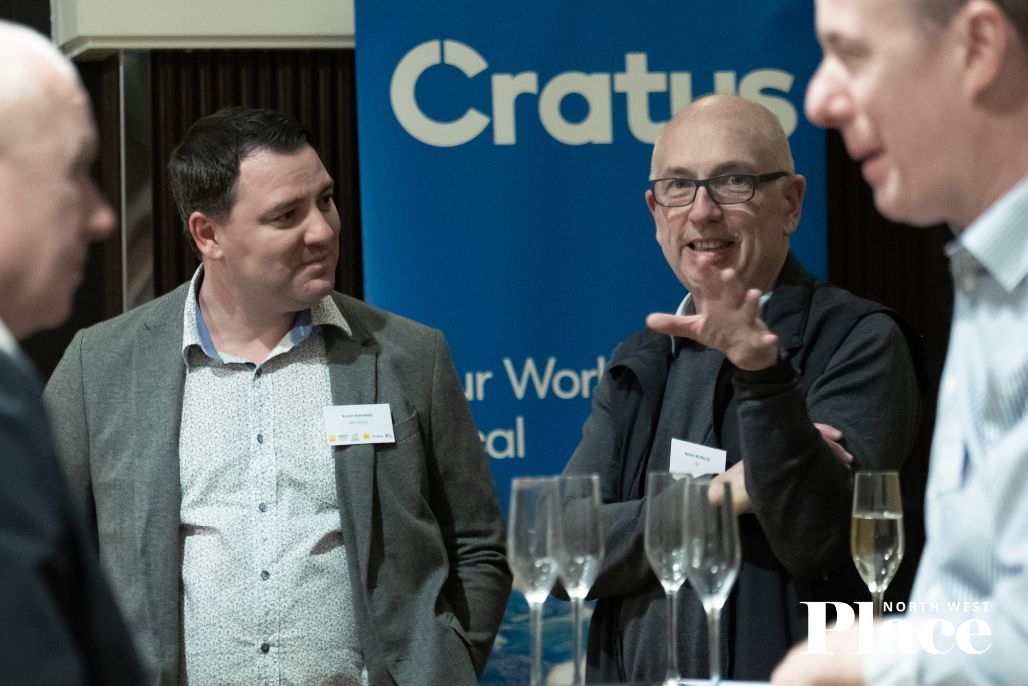
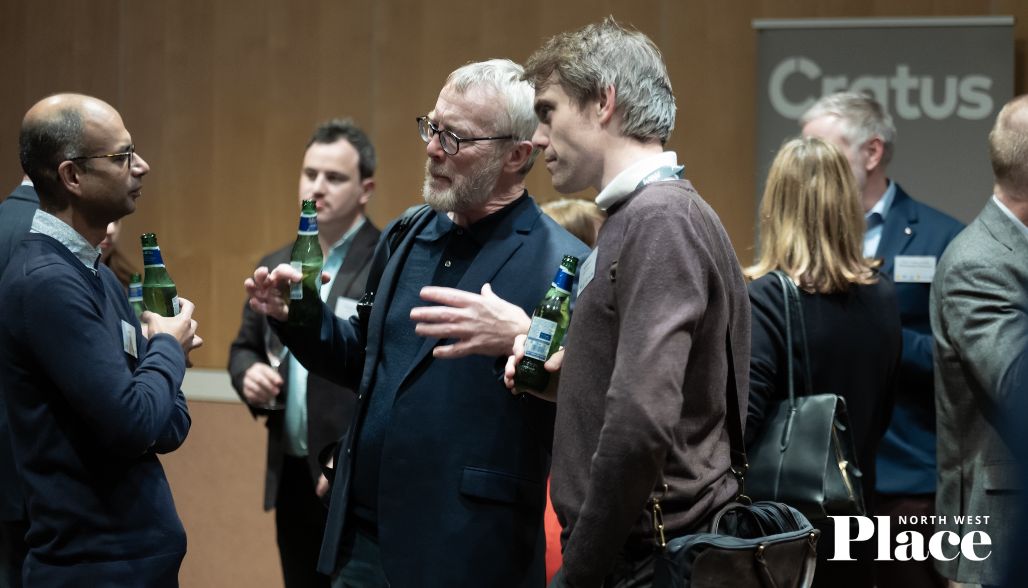

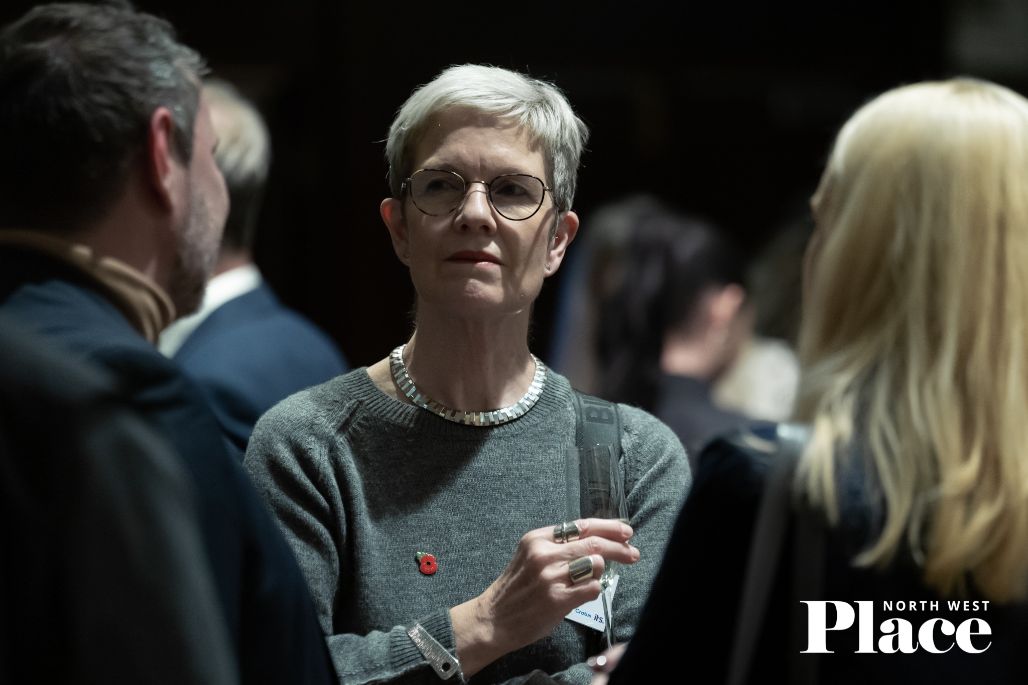
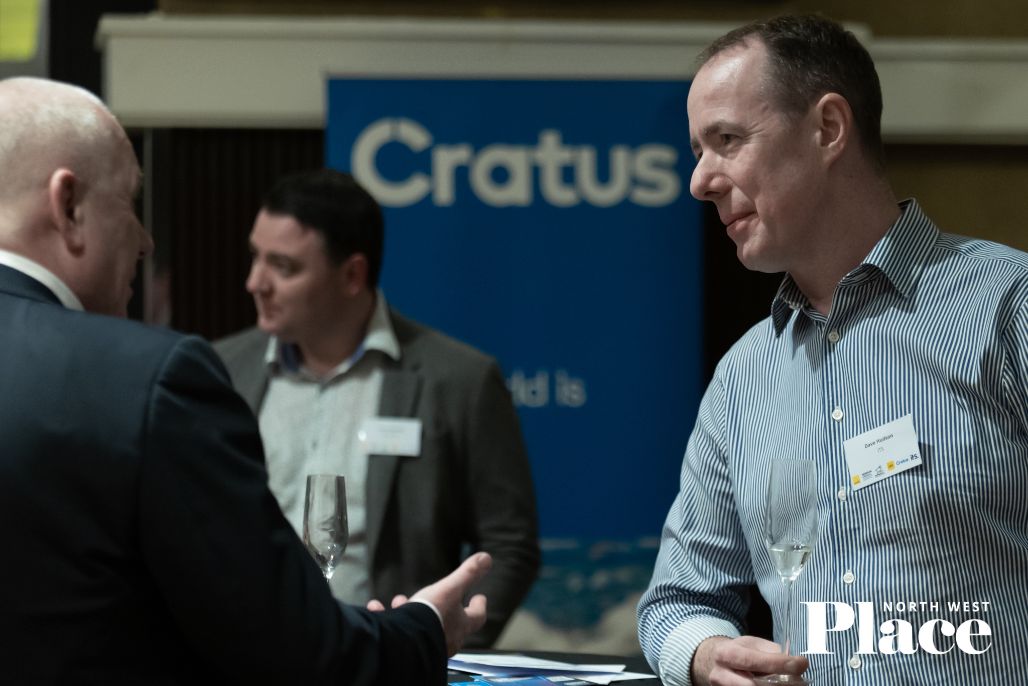
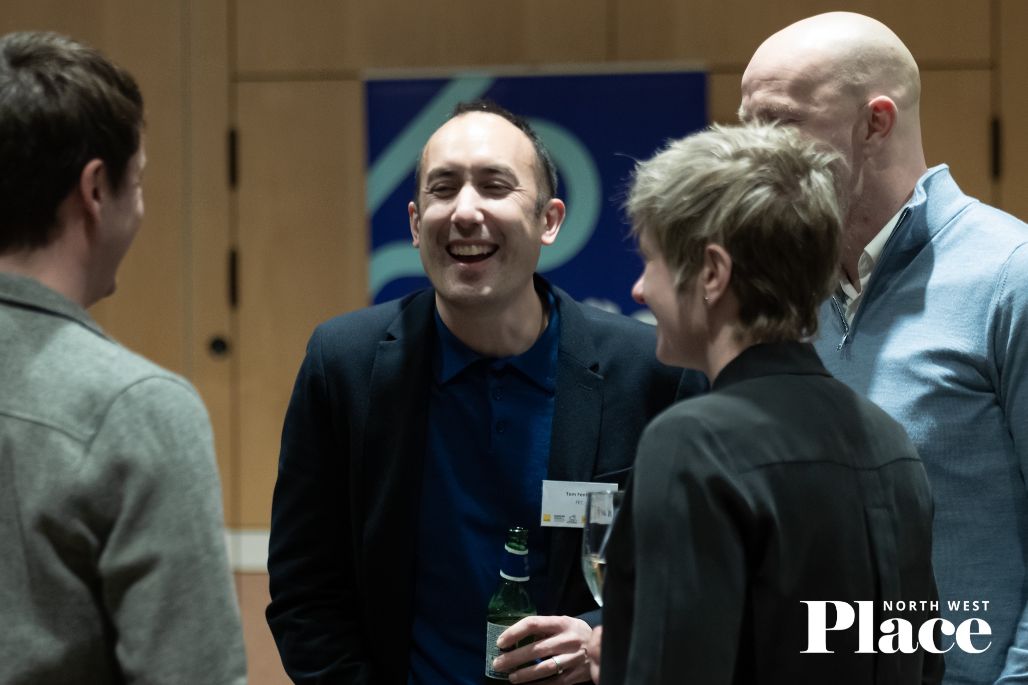
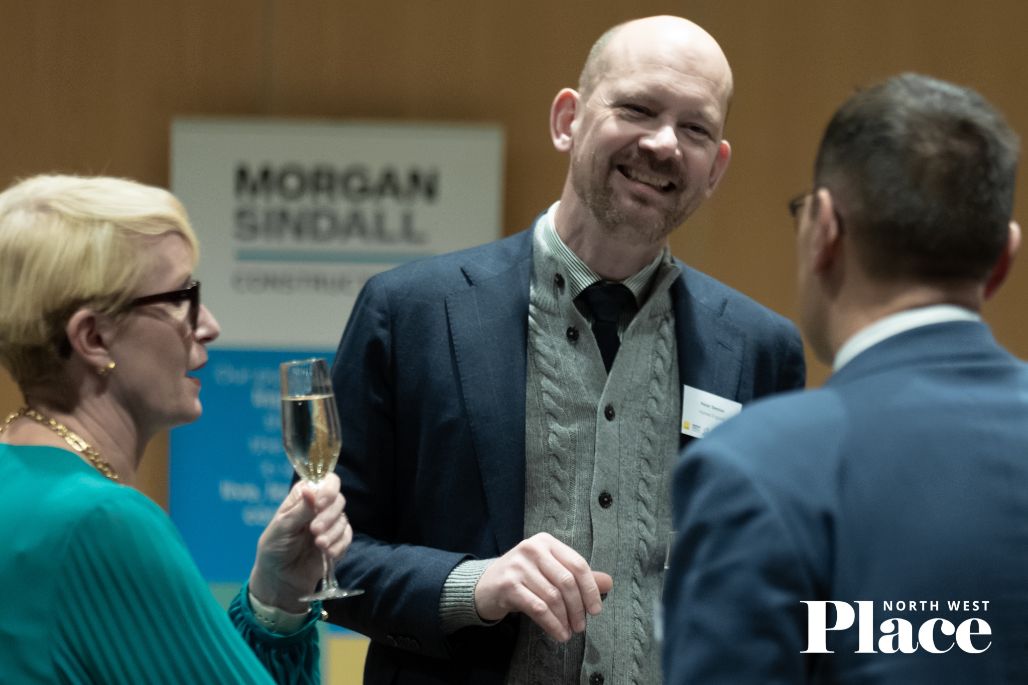
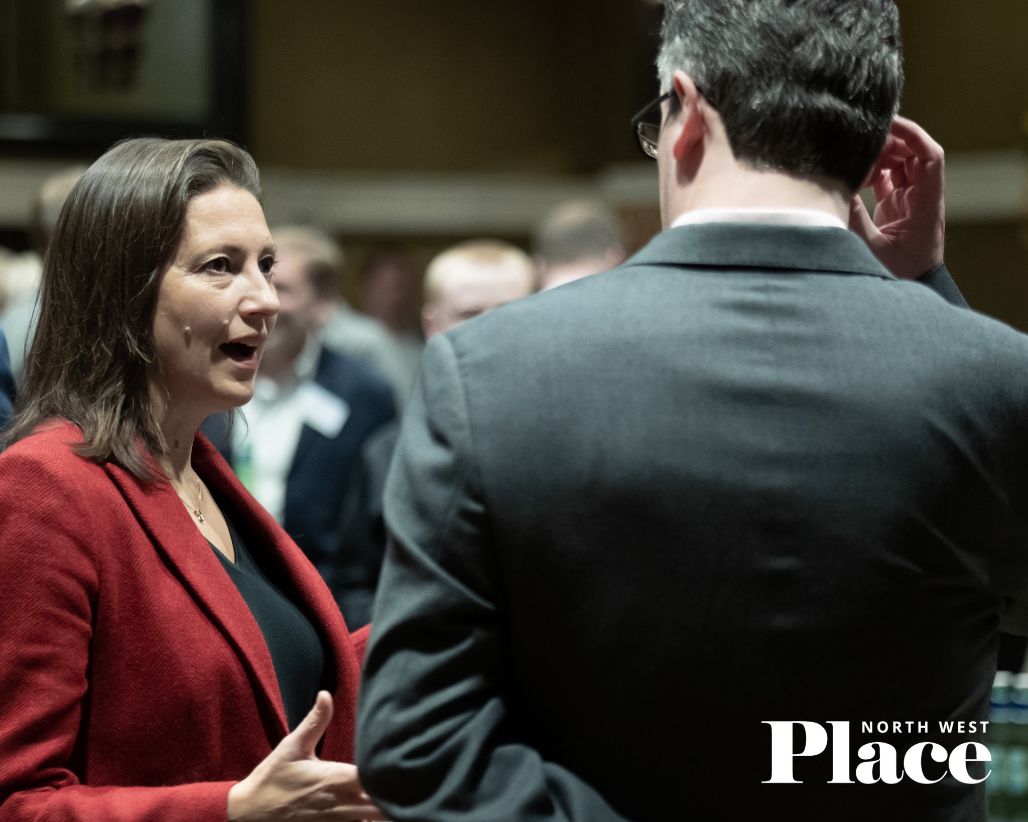
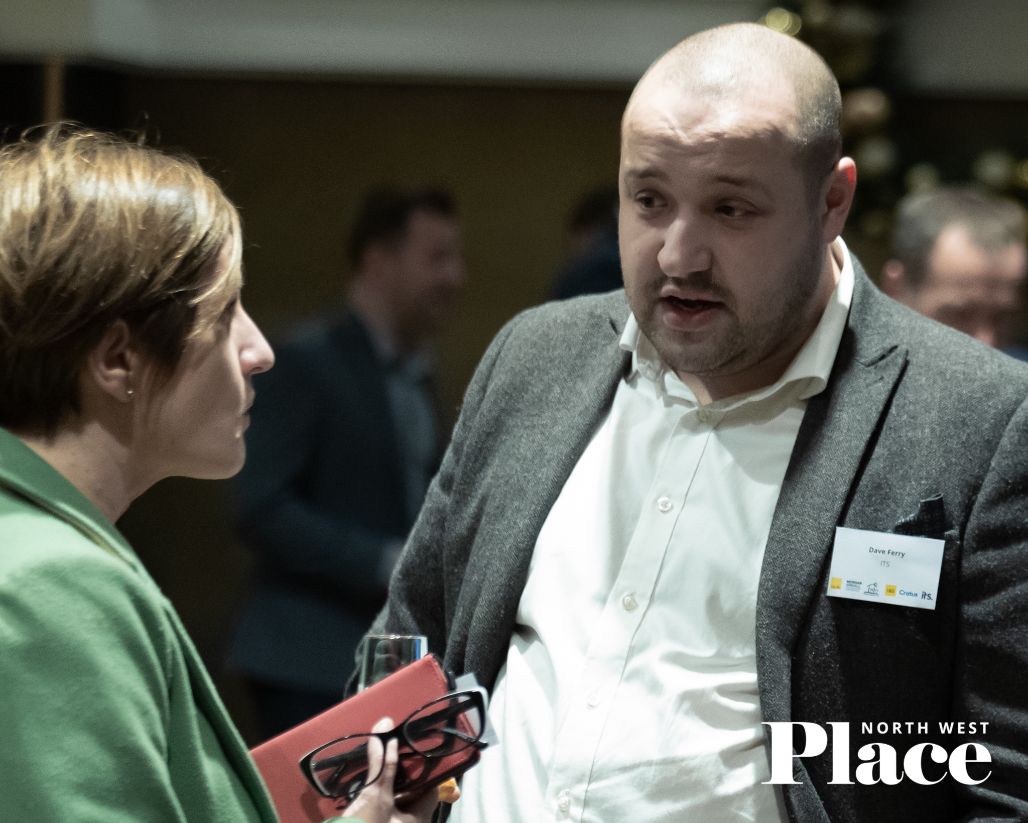


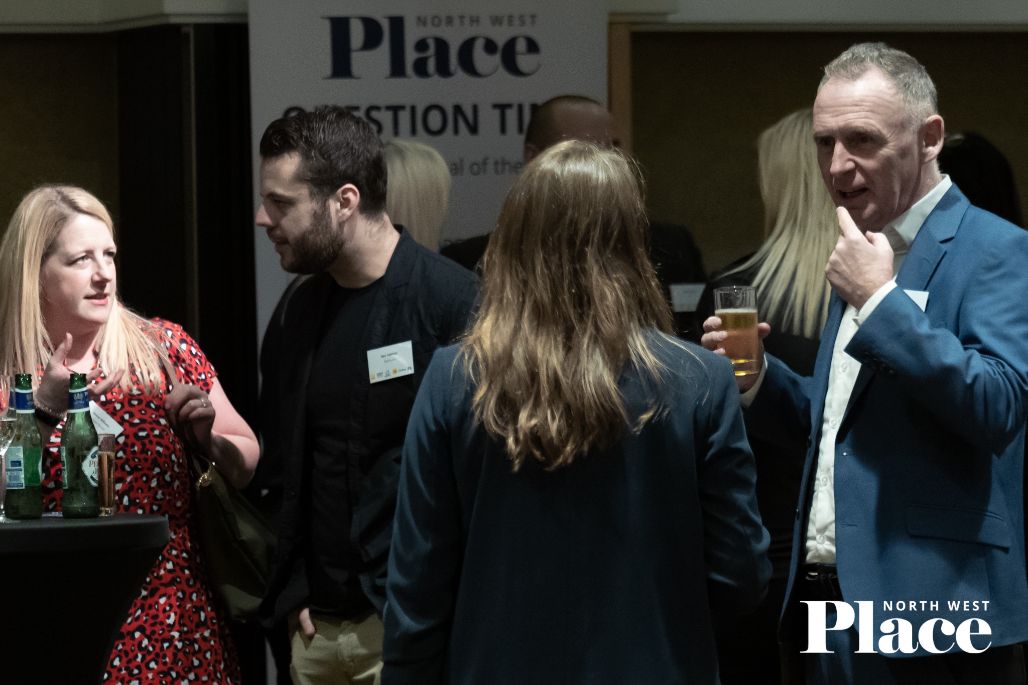
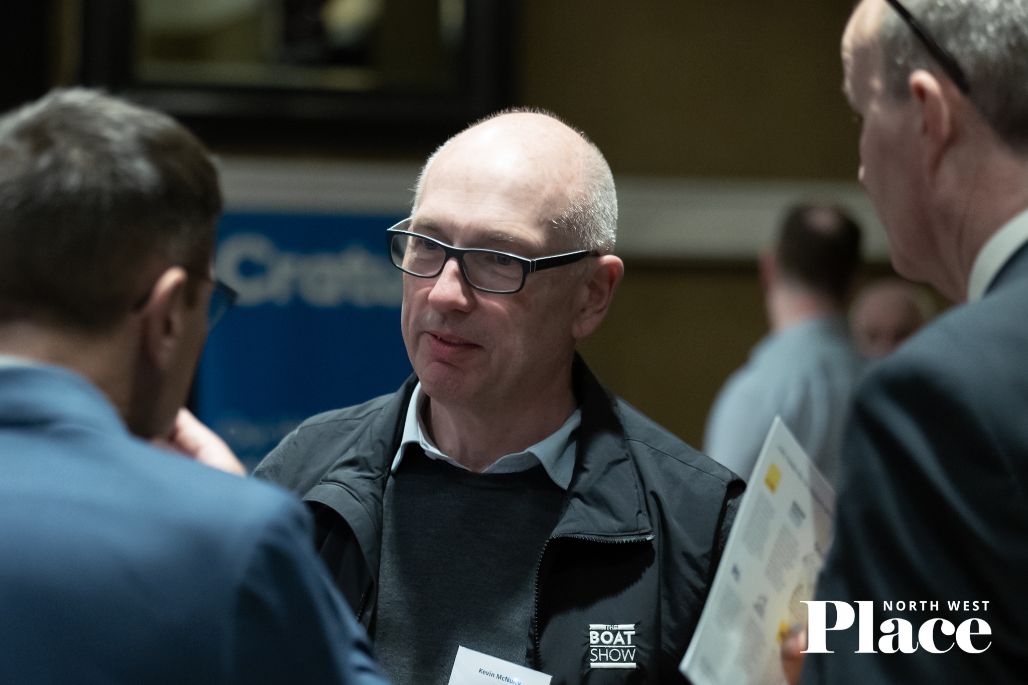
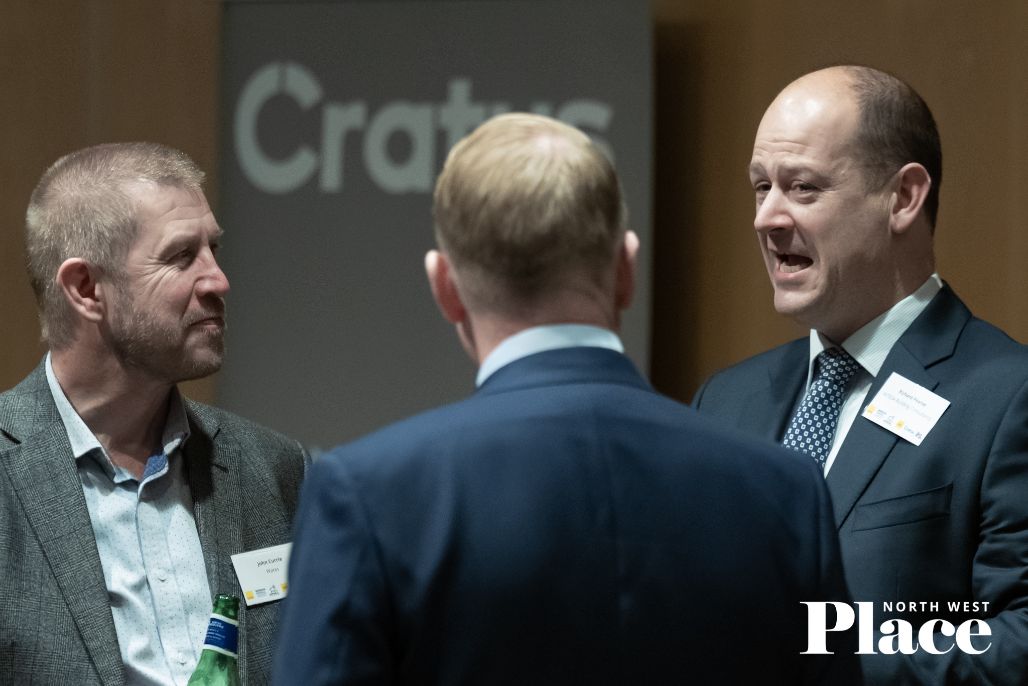
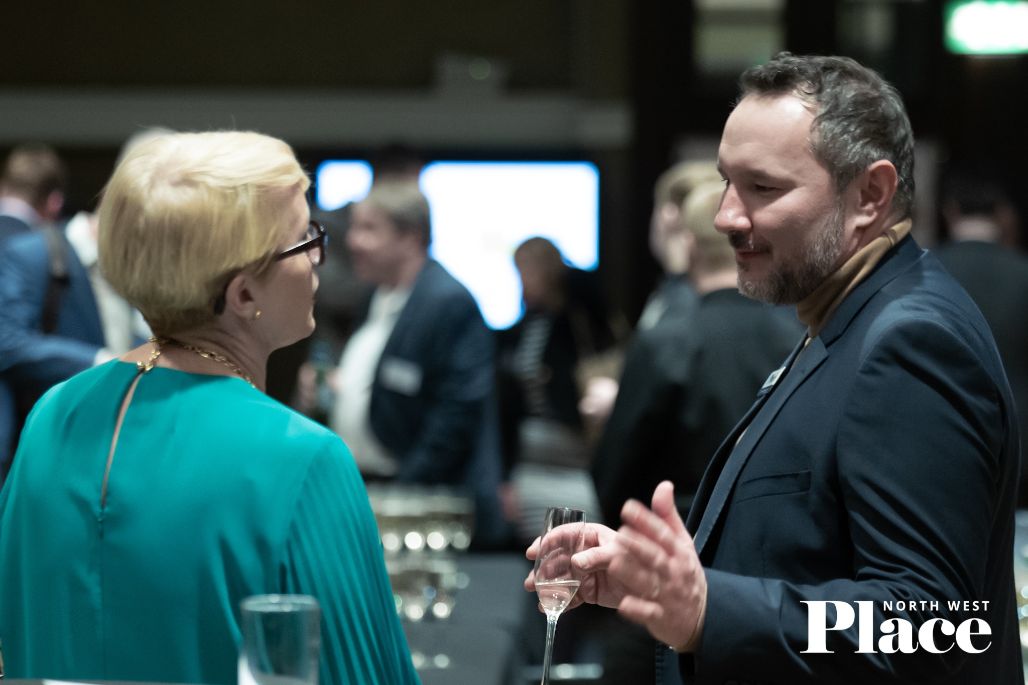
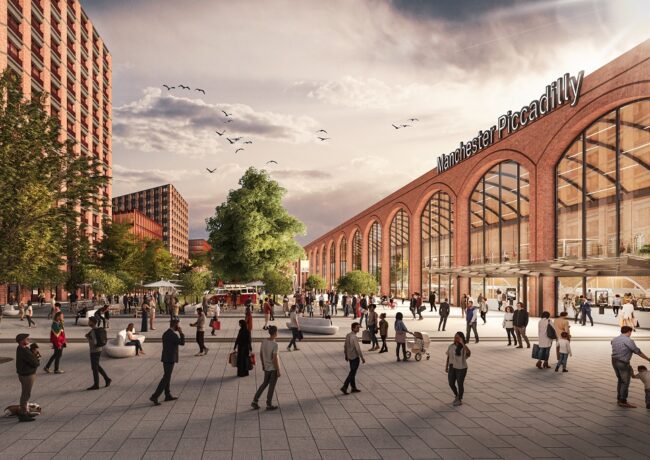
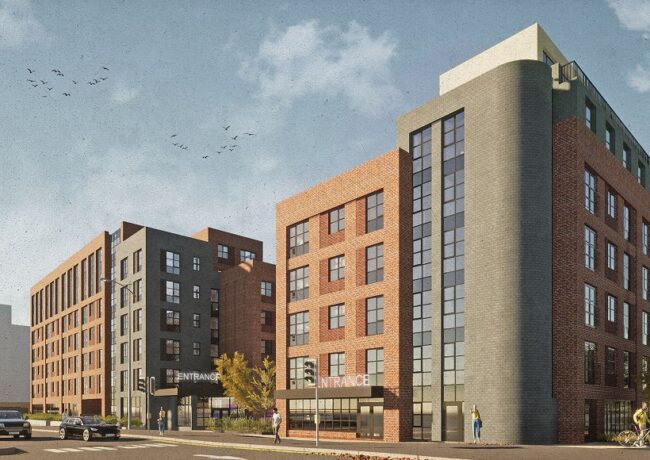
Strategy strategy strategy highlighted by Sir Richard. Most investment decisions are either short term or as we’ve seen with NPR subject to Government changes. Long term planning isn’t given priority !
By TJL
Thank you Place North West for creating such a great event. Was very interesting to hear the views of M G and Grovsenor in particular.
By Dave H
DeBlahBlah shouldn’t use the ex Olympic infrastructure as an advert for anything except savage capitalist speculation. Before a single brick was laid, the property vultures were fighting over who would get their hands on the most profitable properties. He paints a pretty picture, but in reality the Olympic Village is more like an isolated East London breakaway civilisation.
By Shouty Cnut